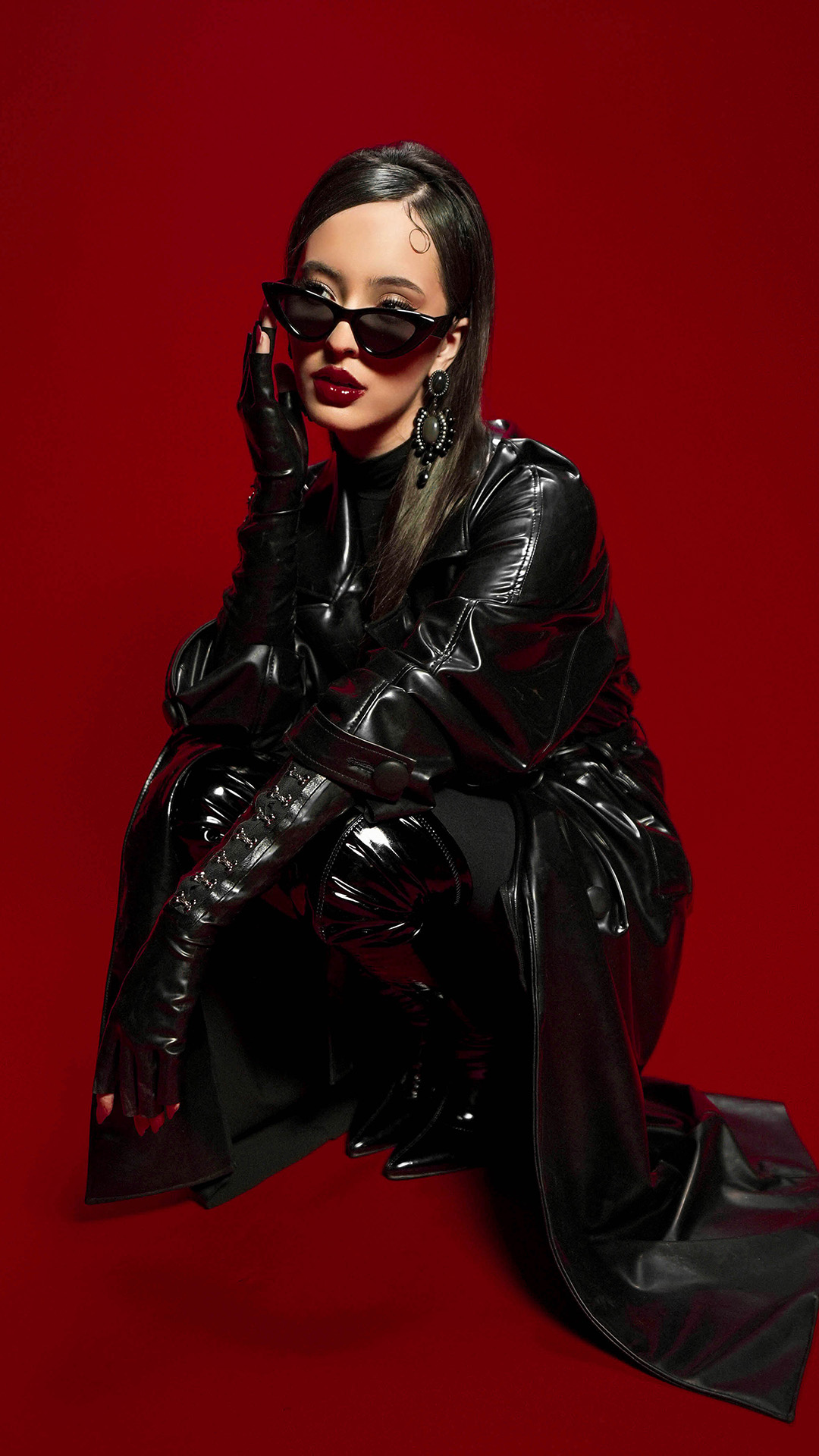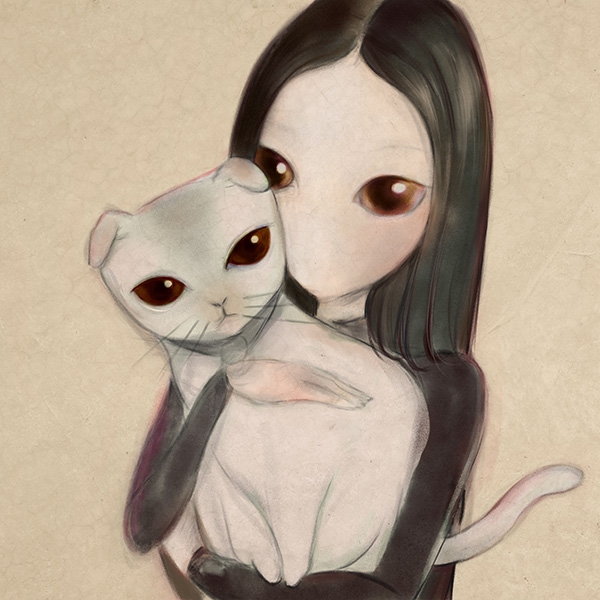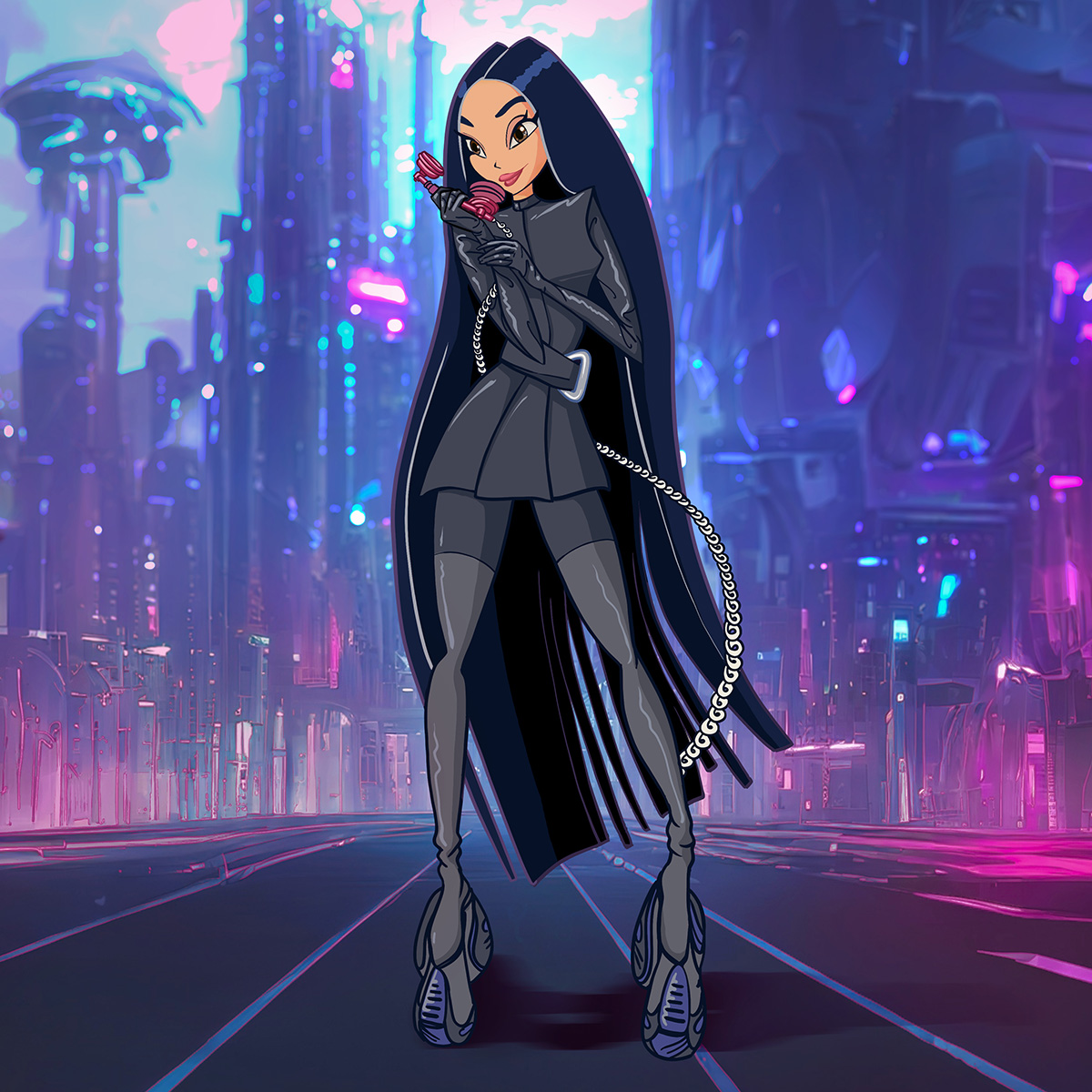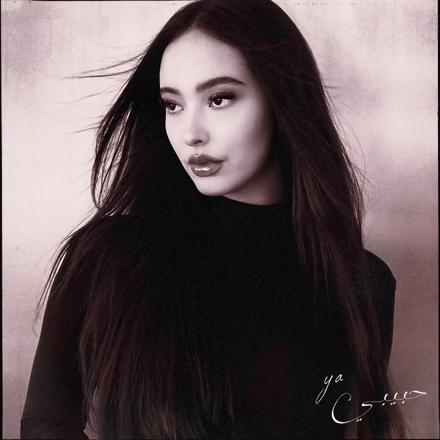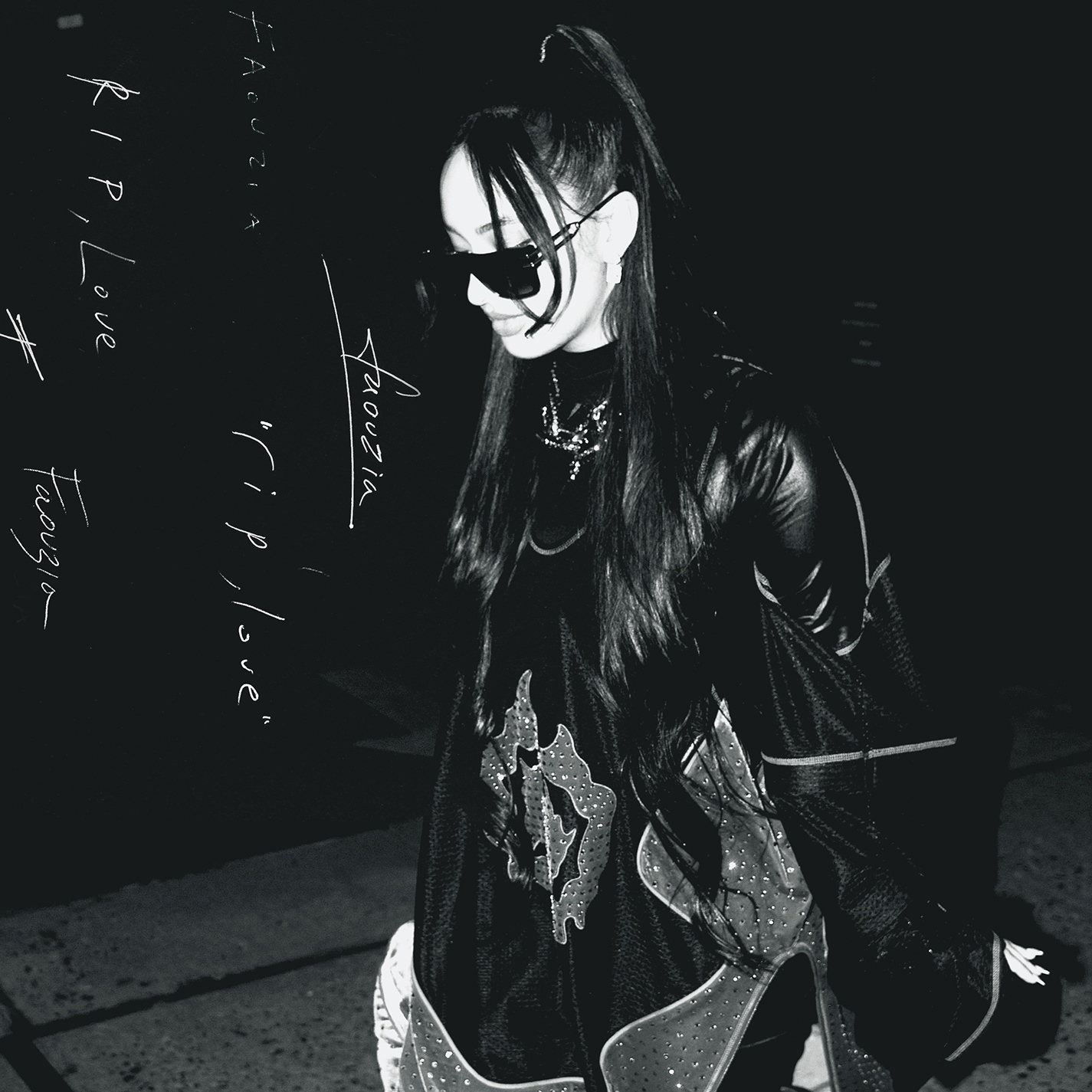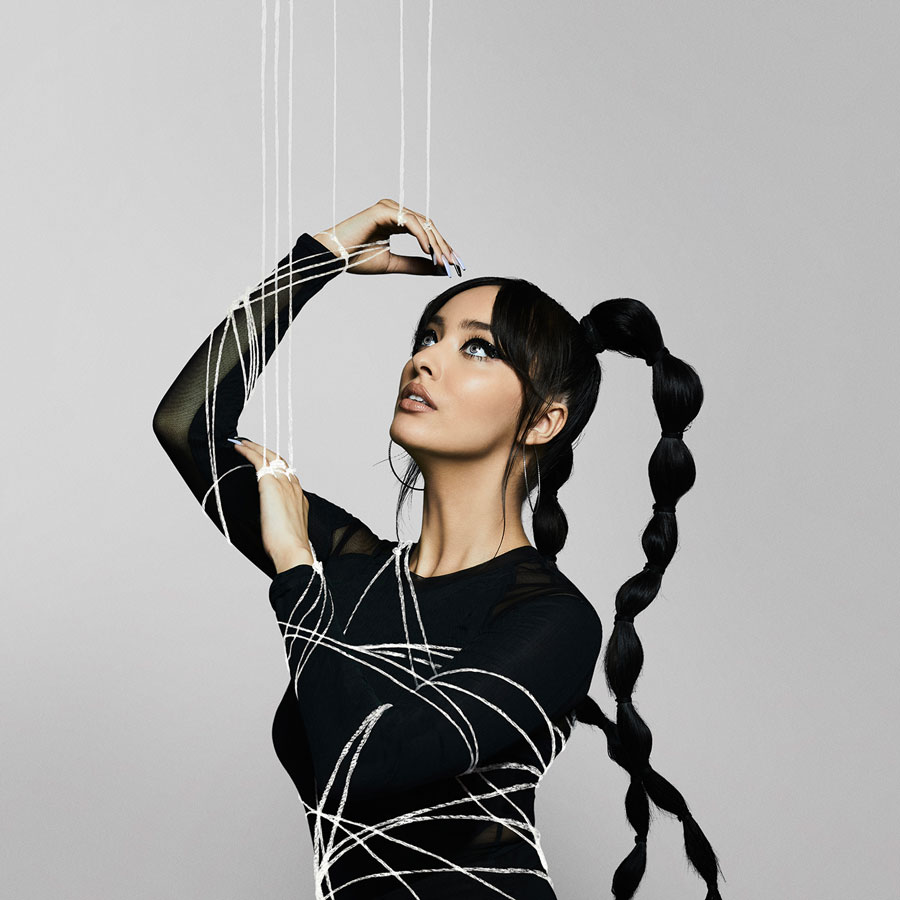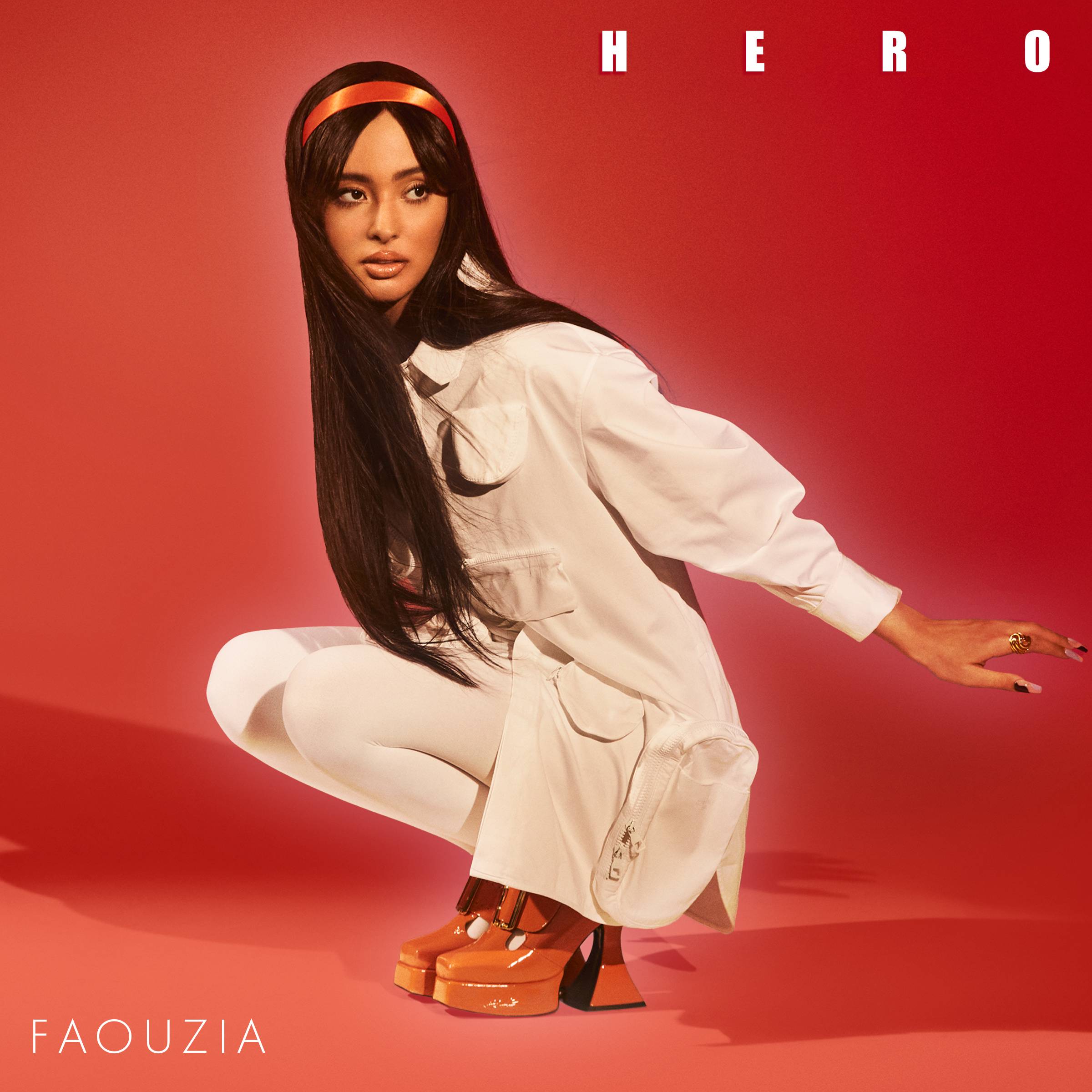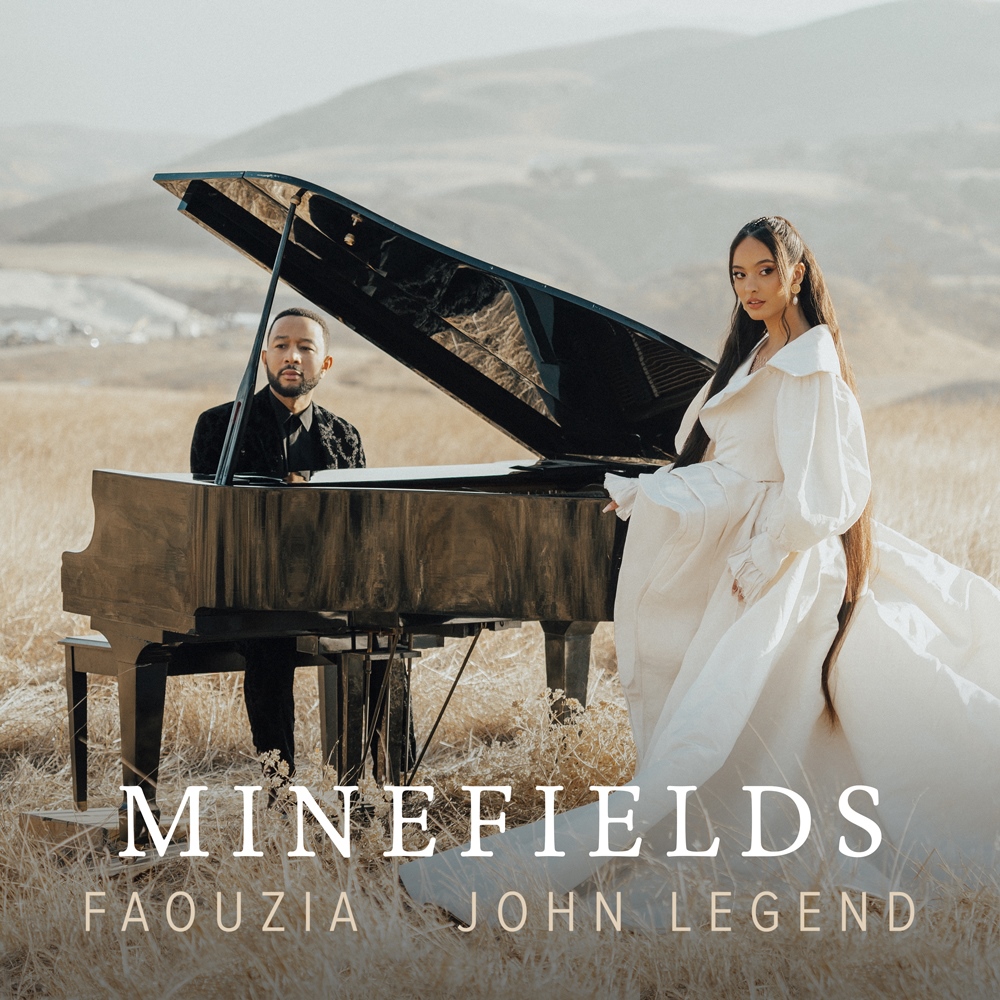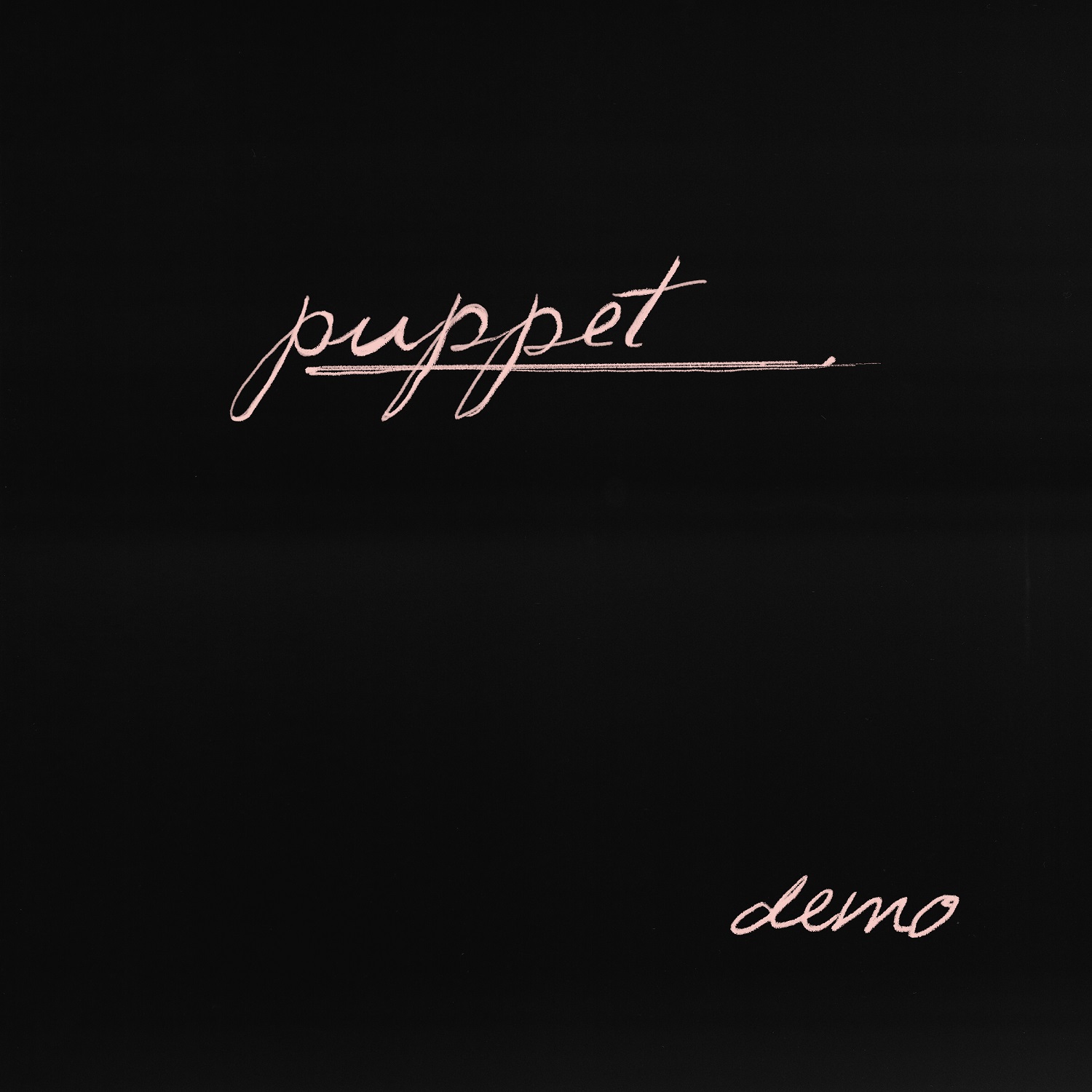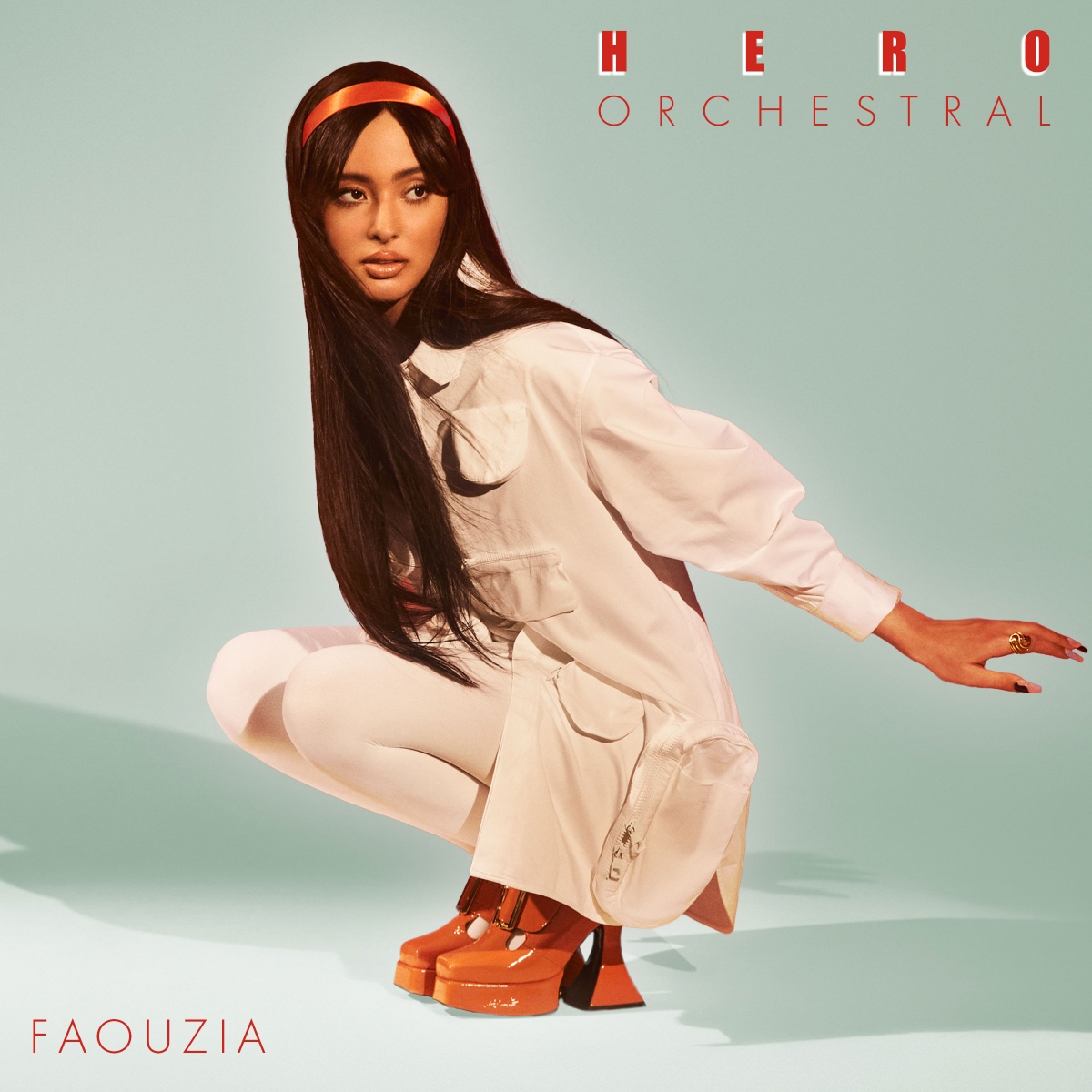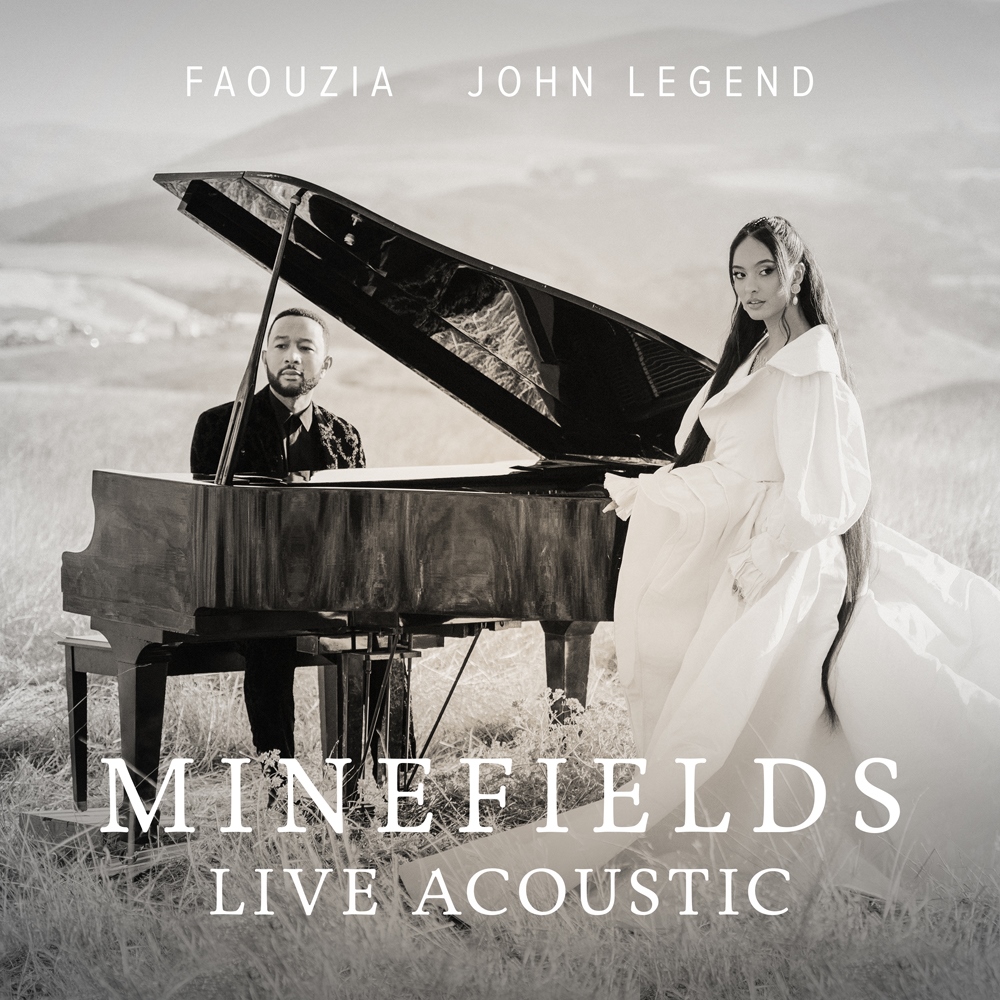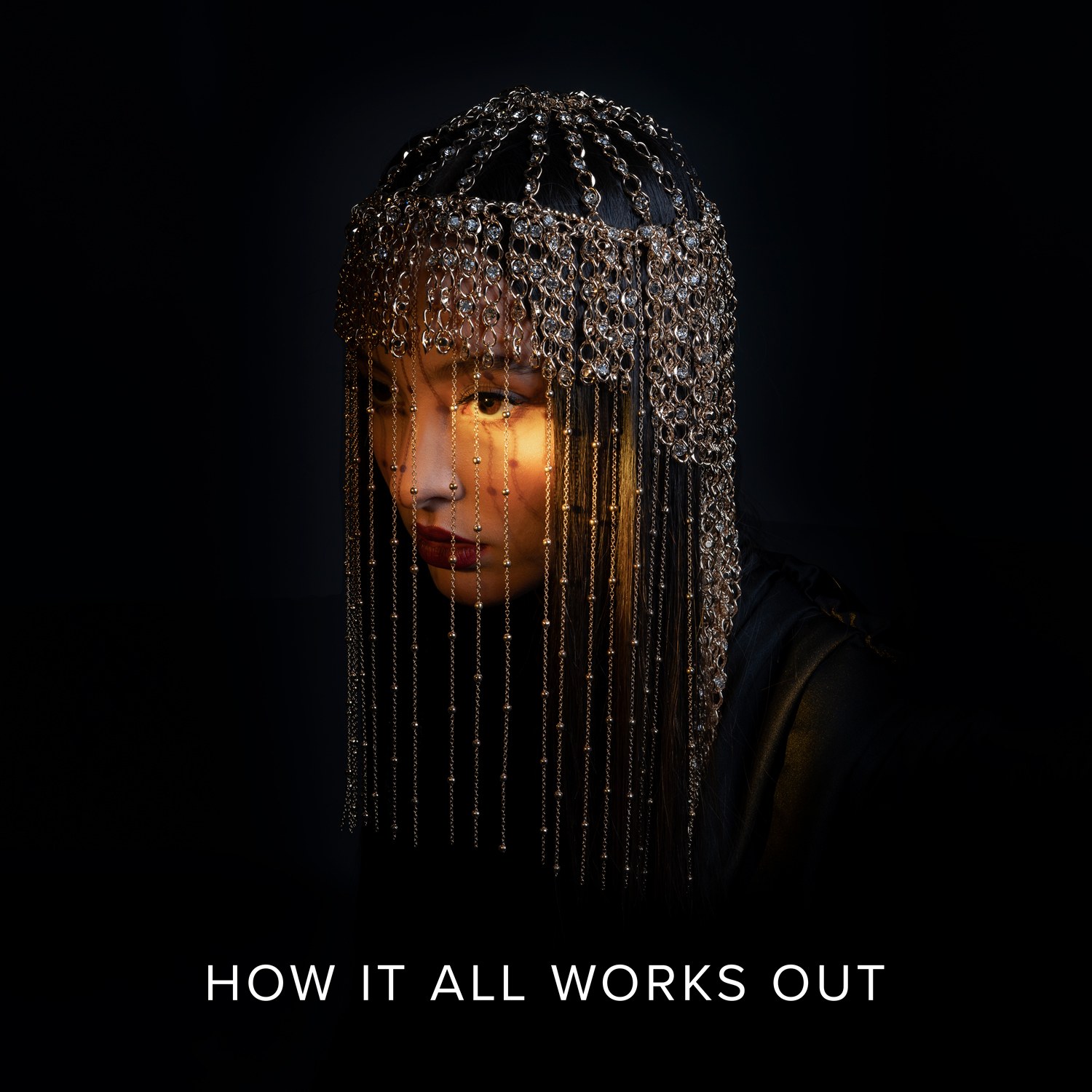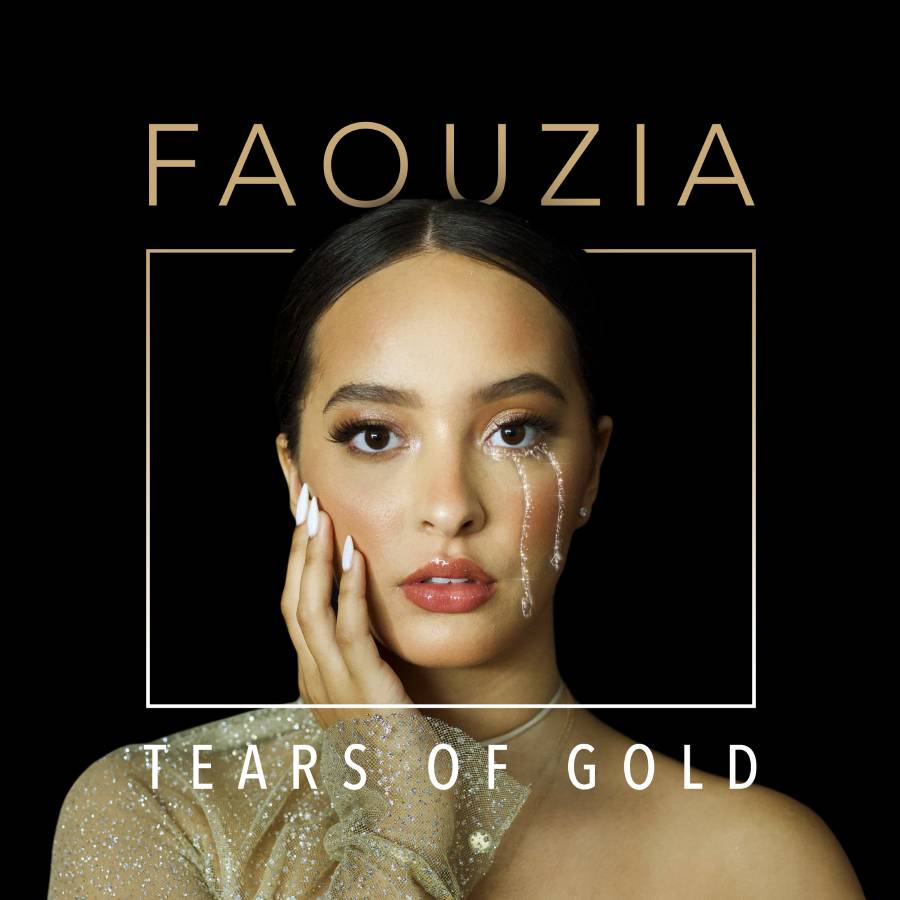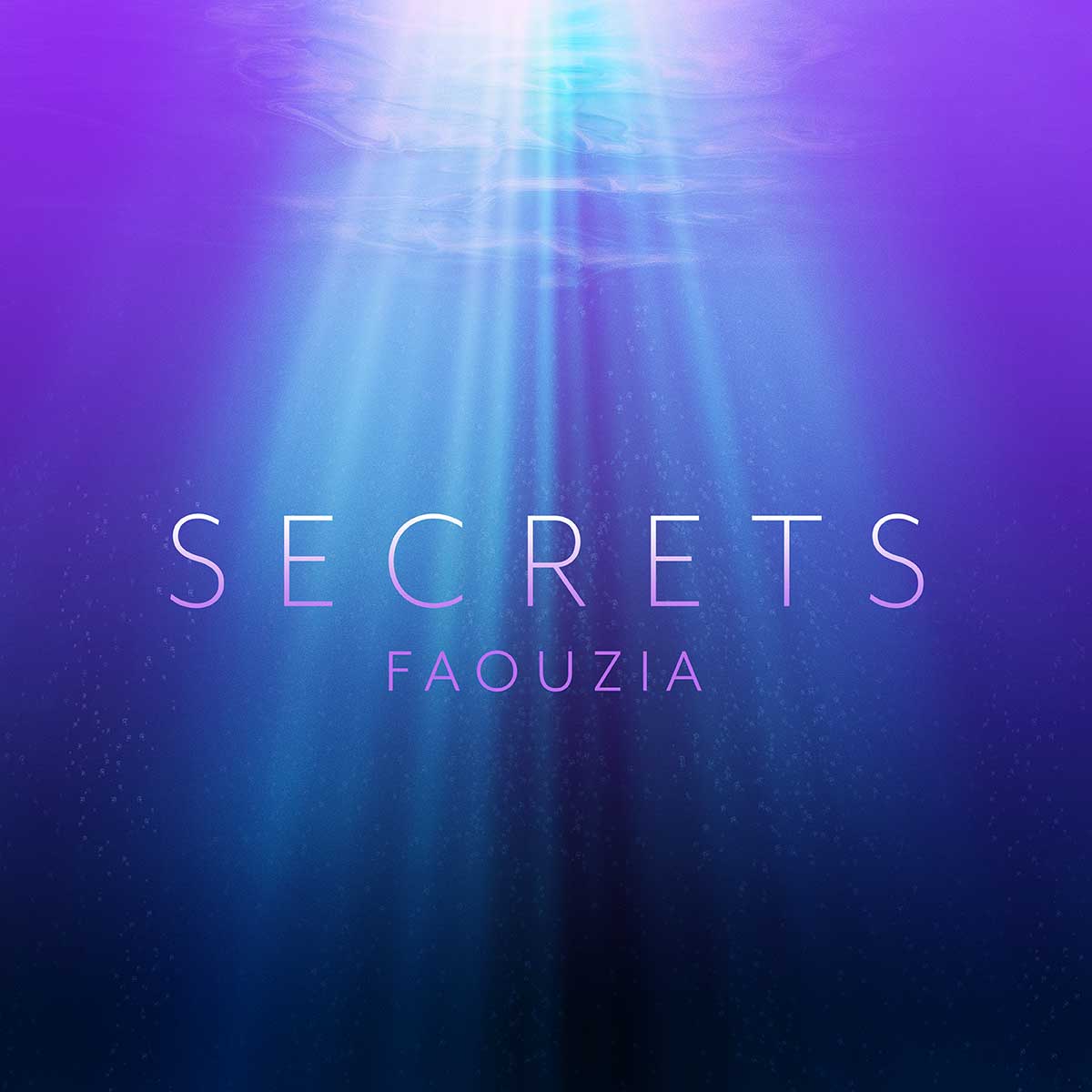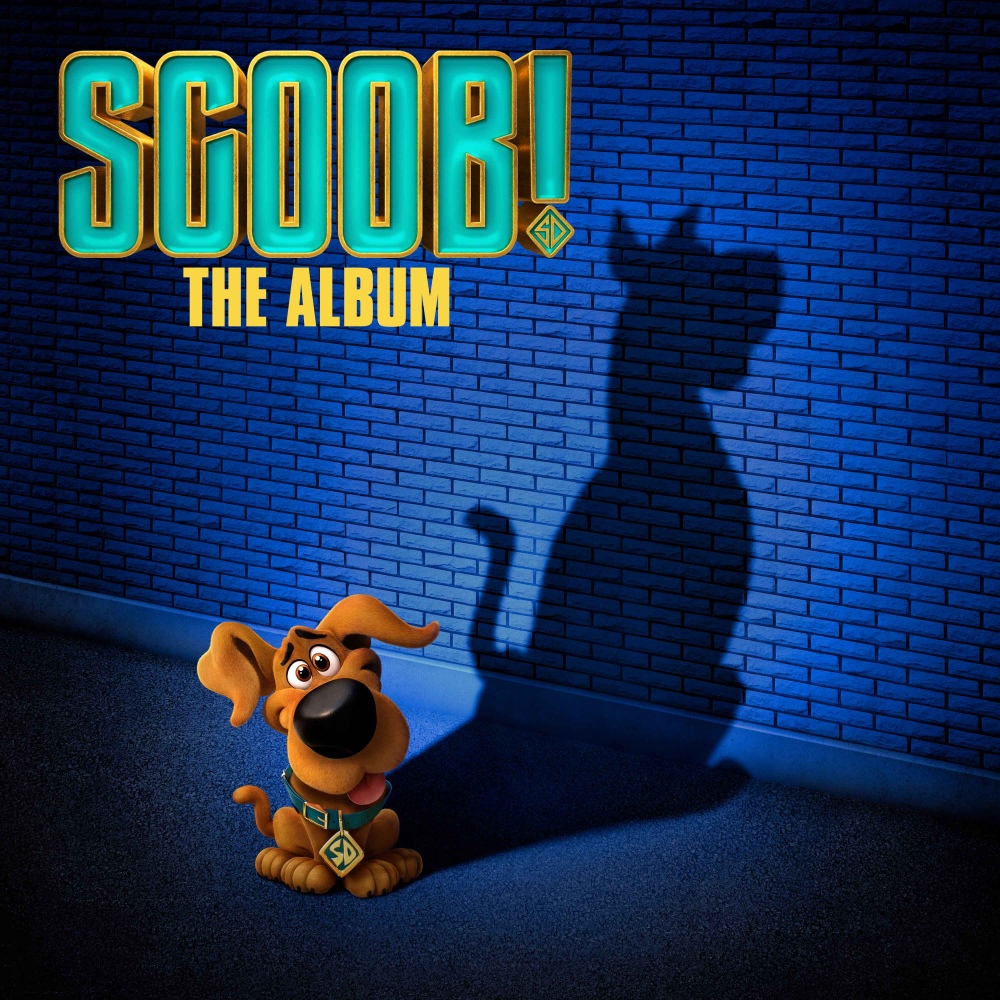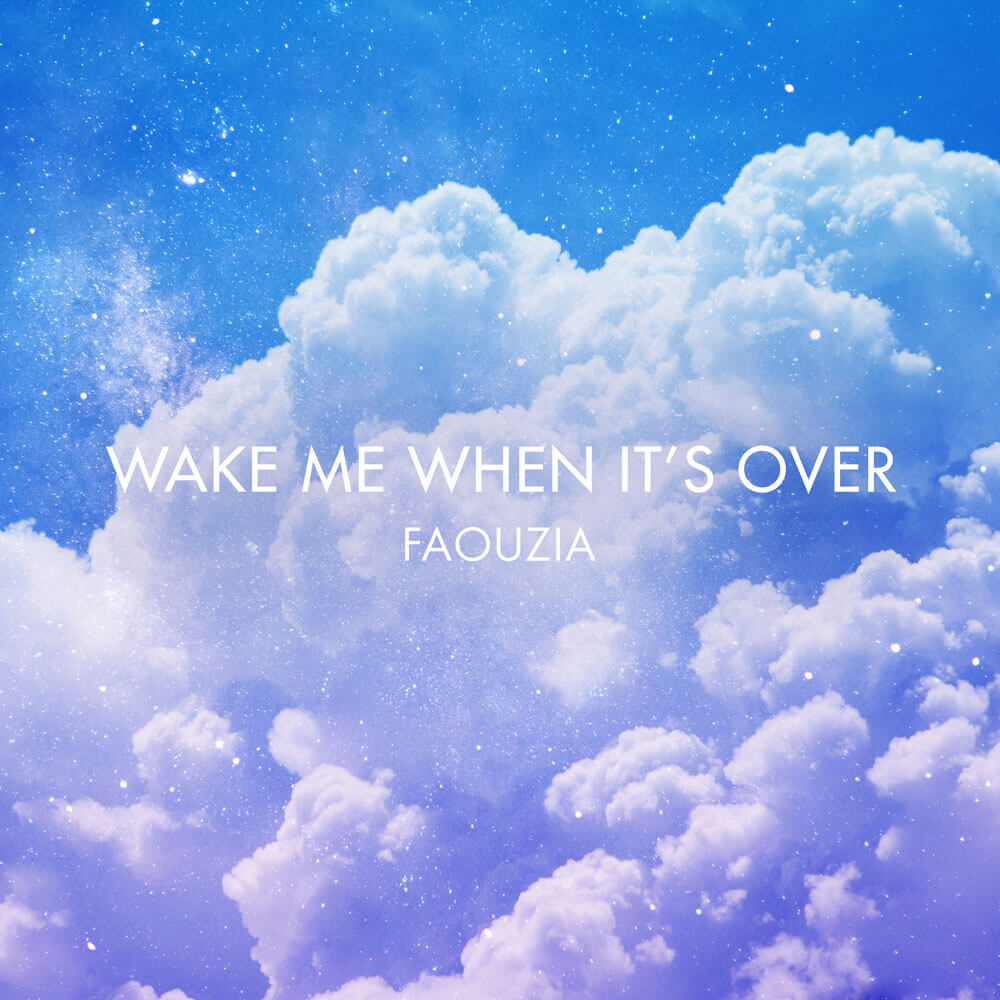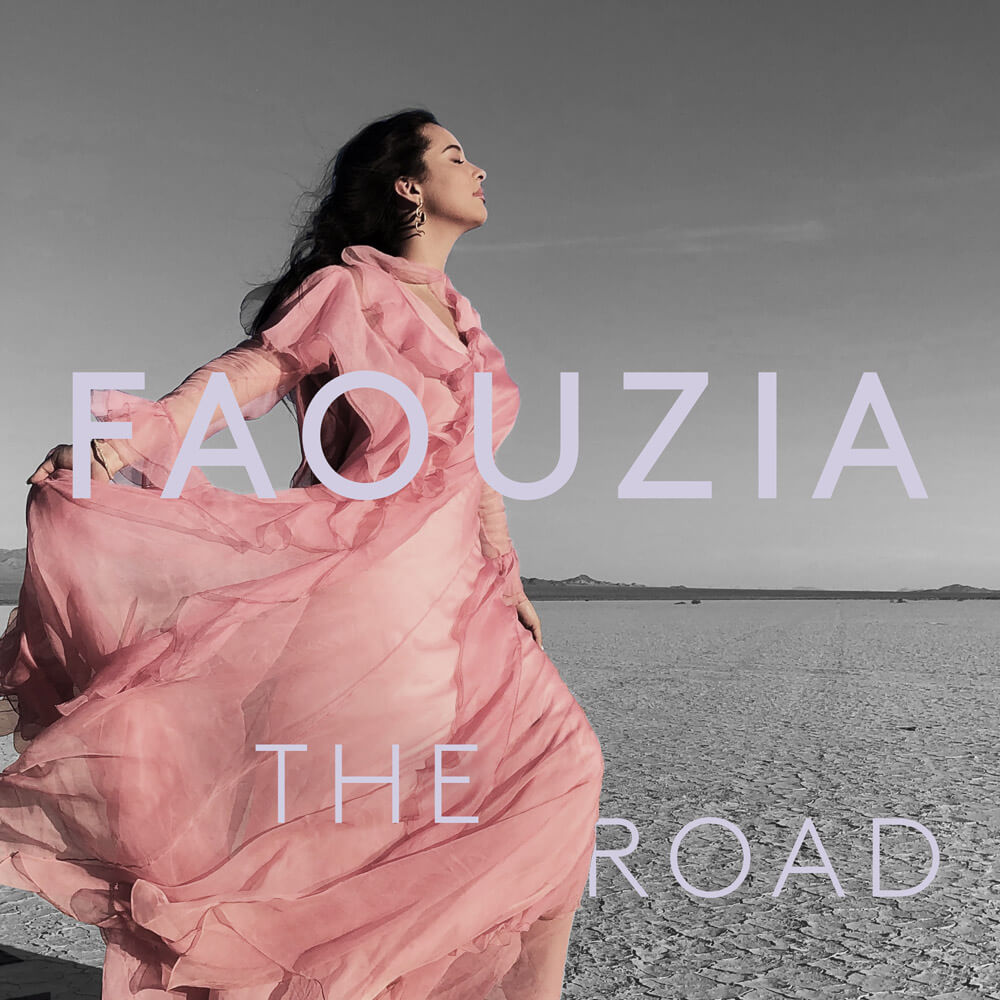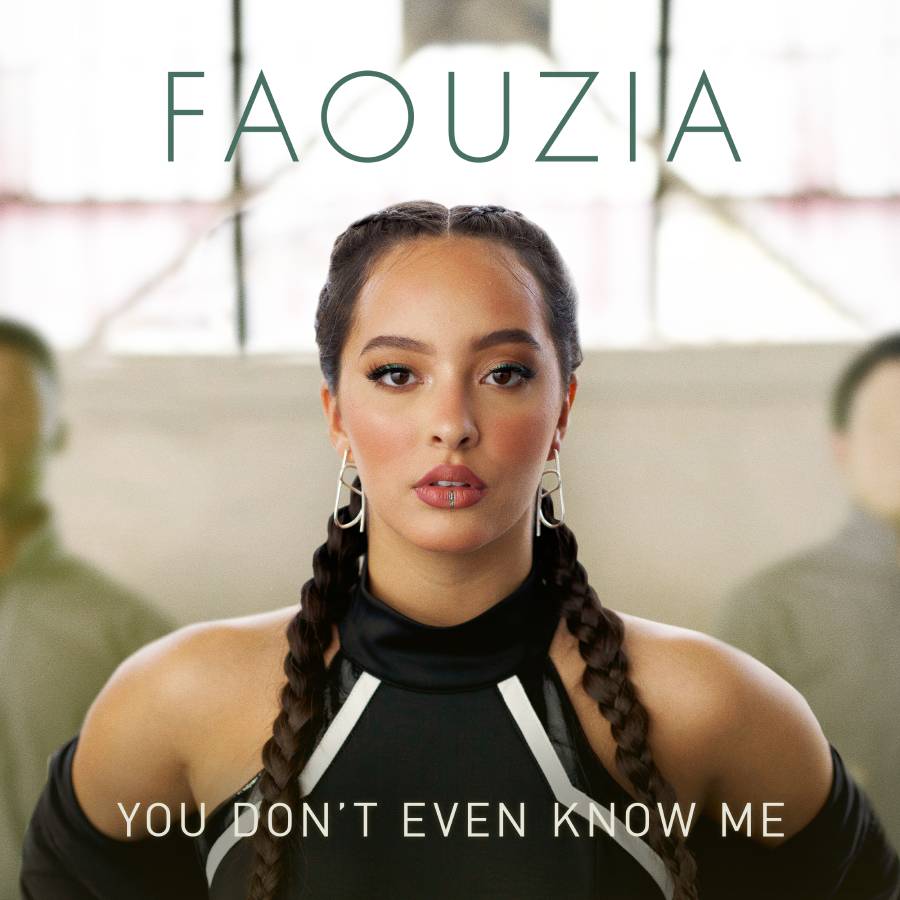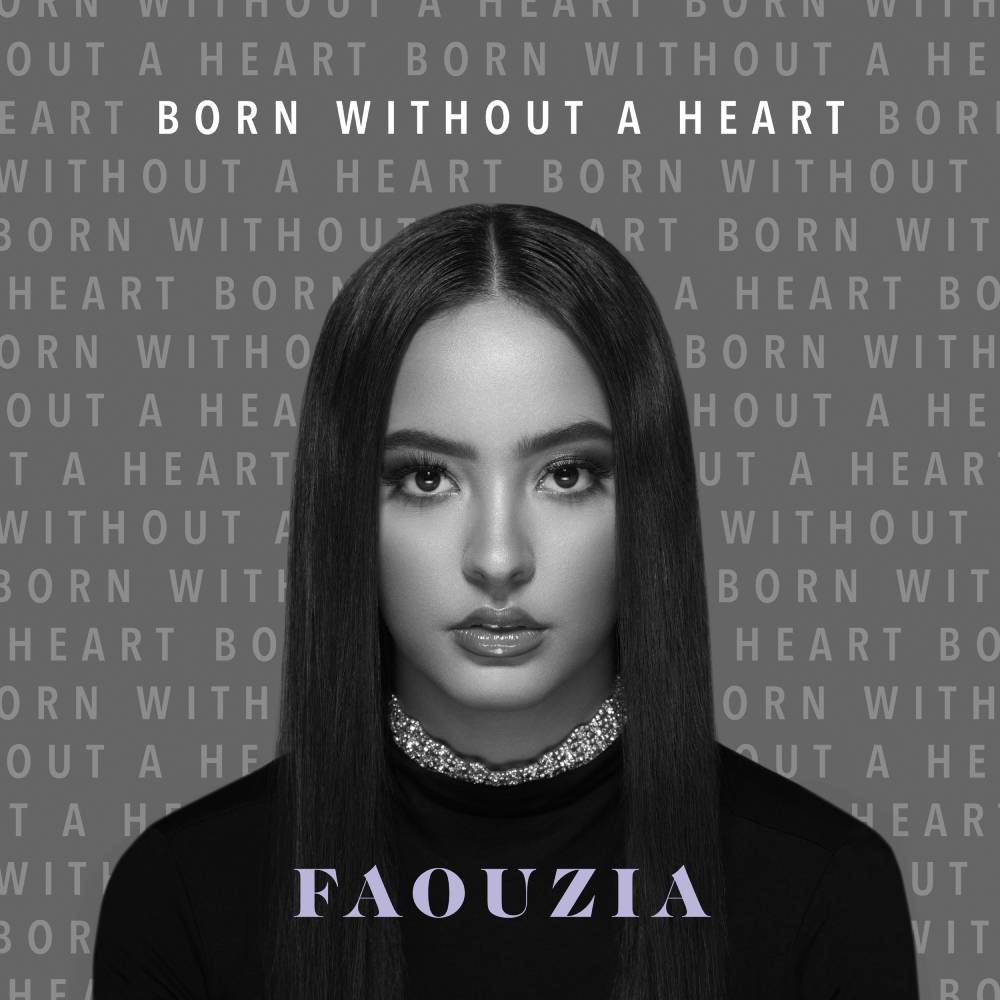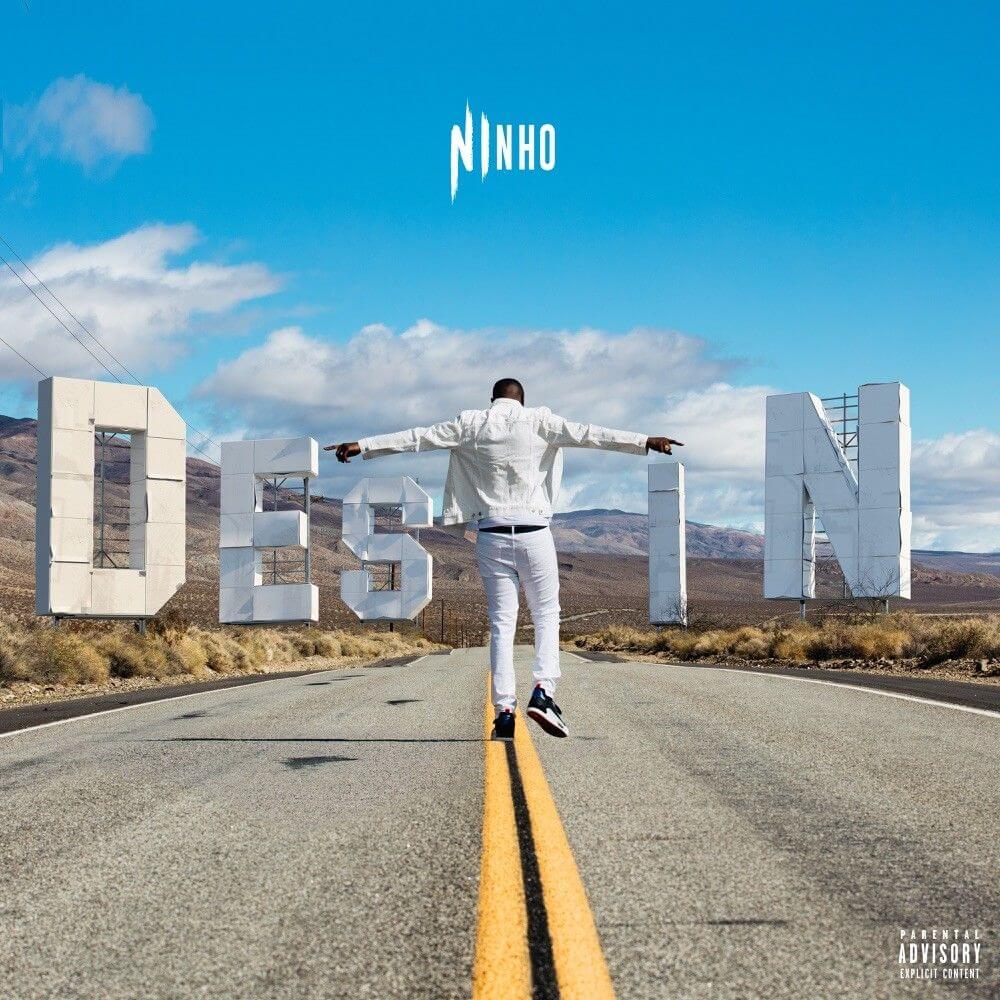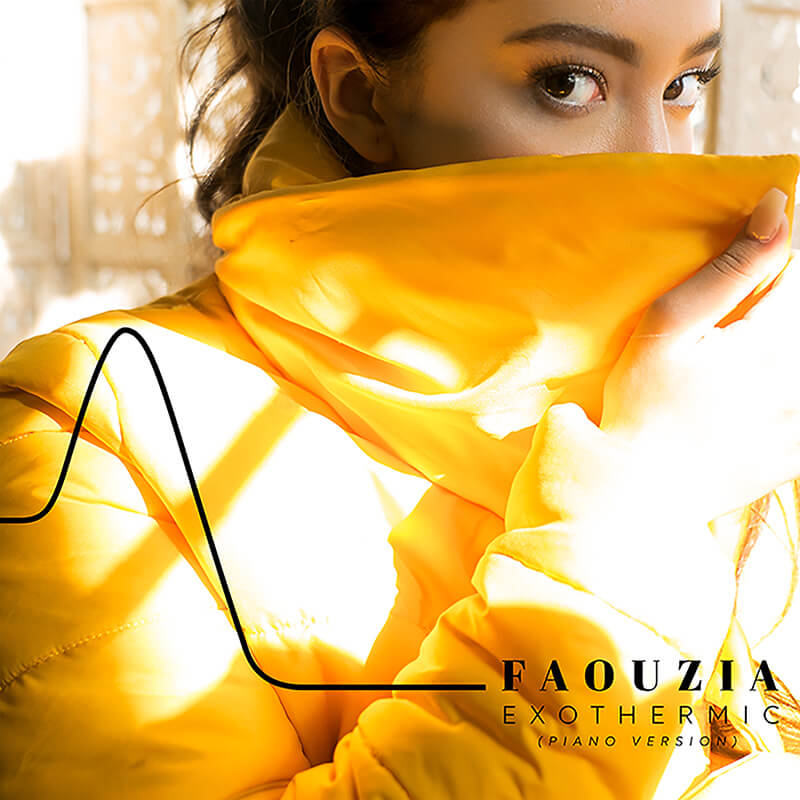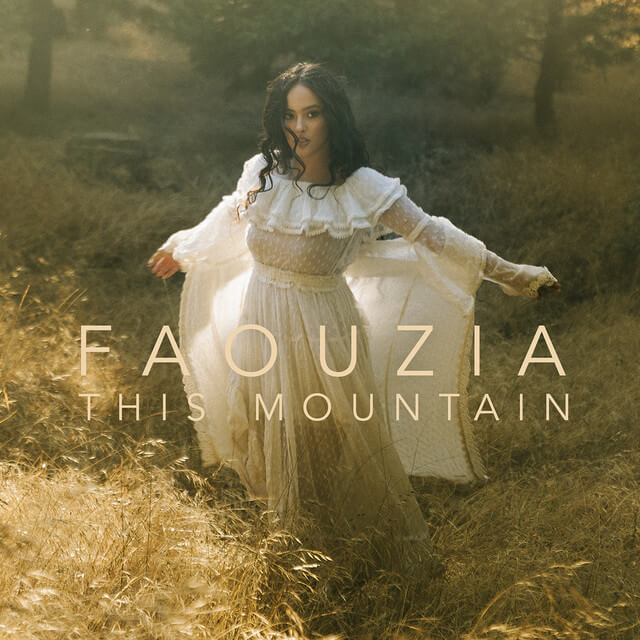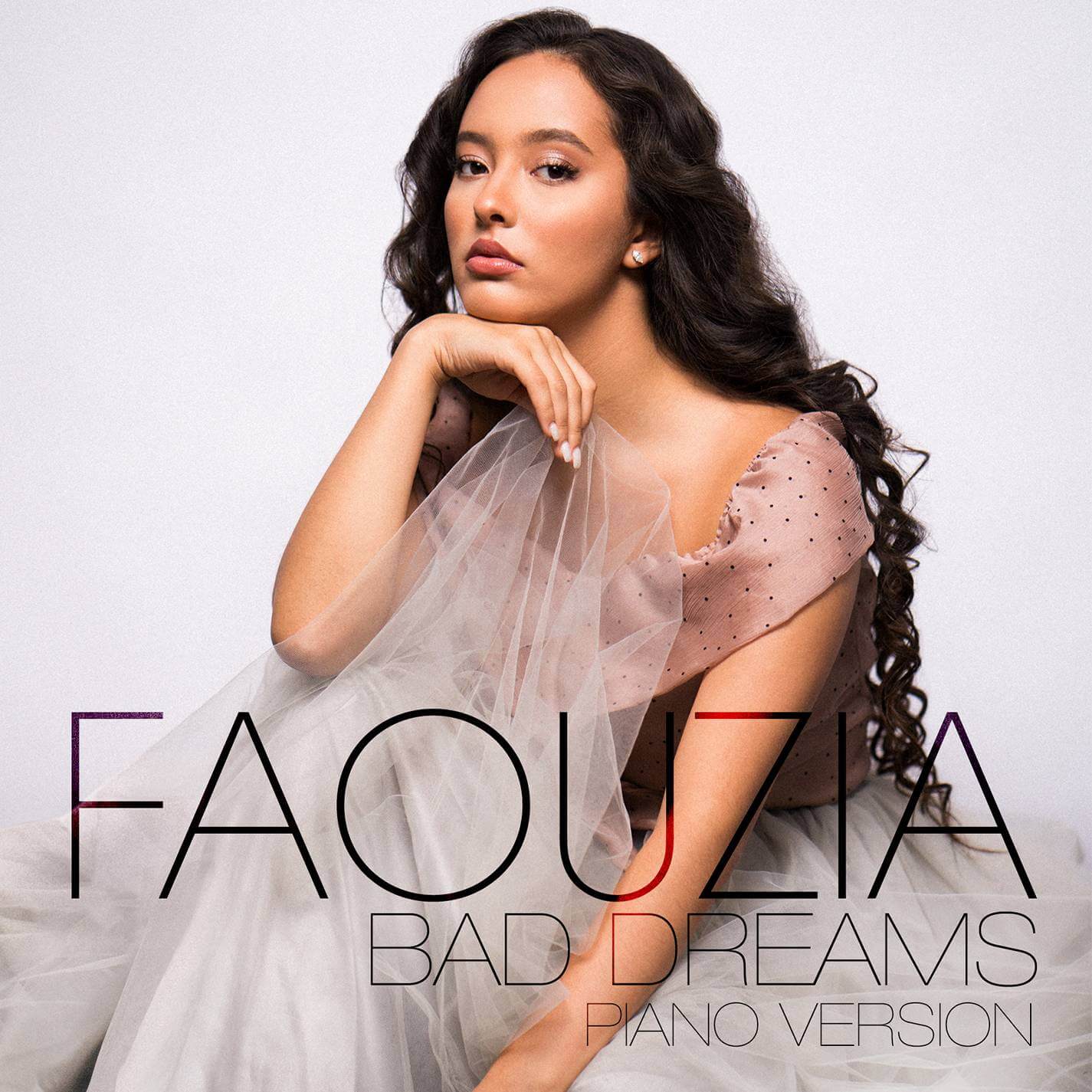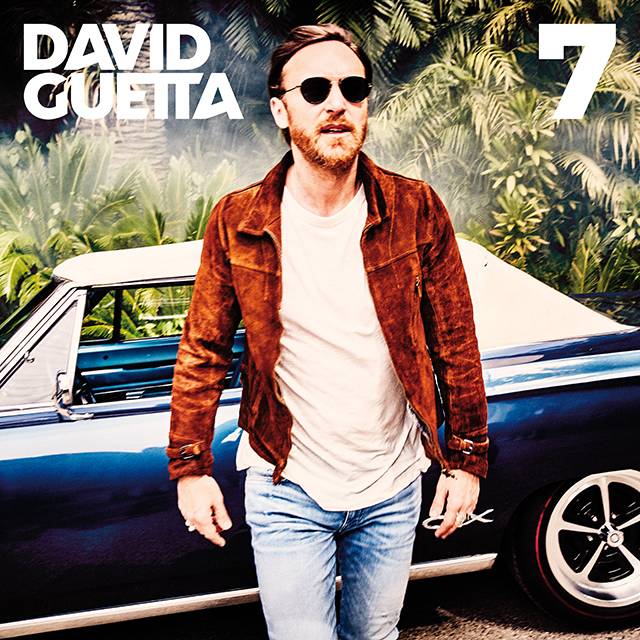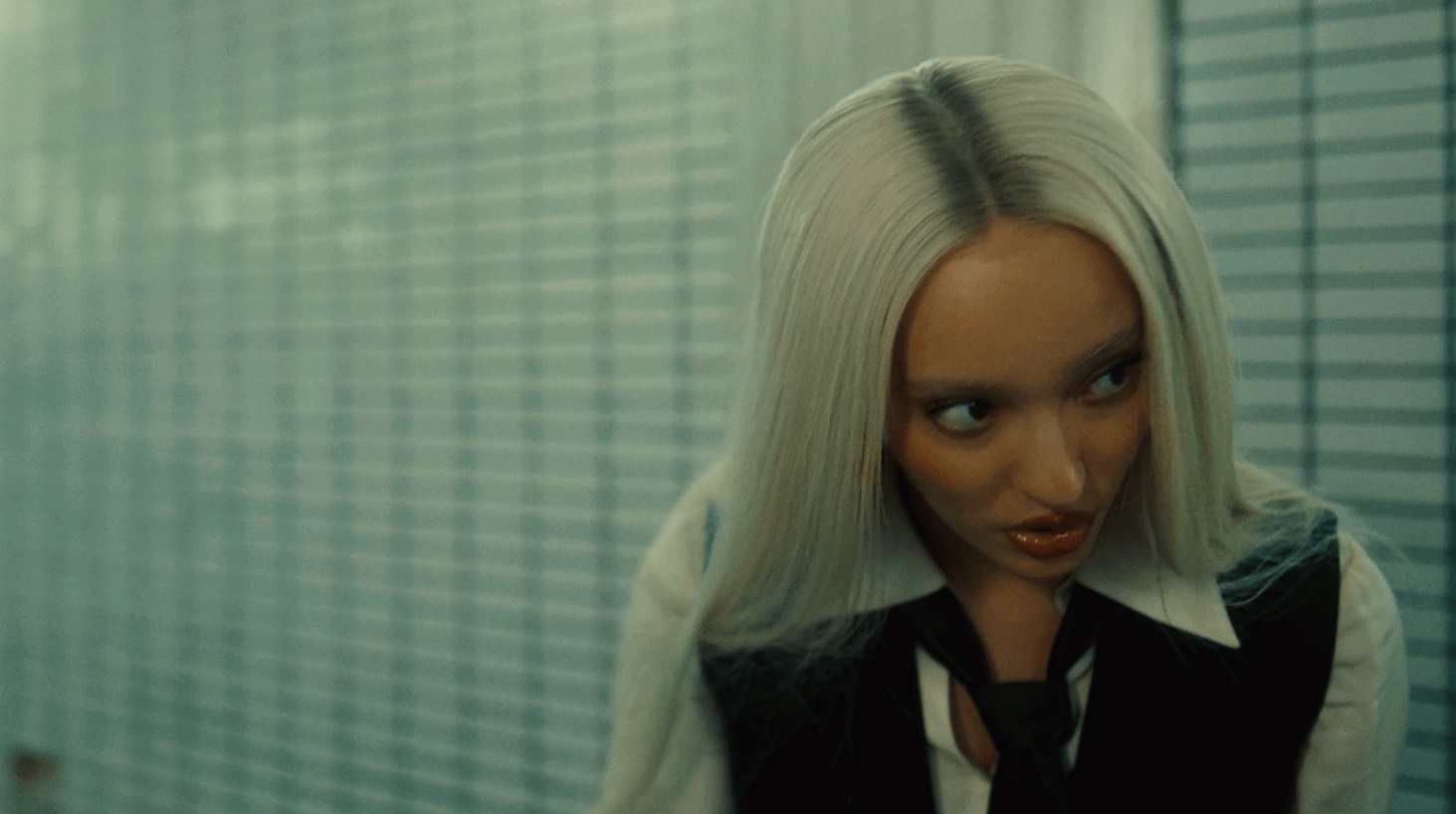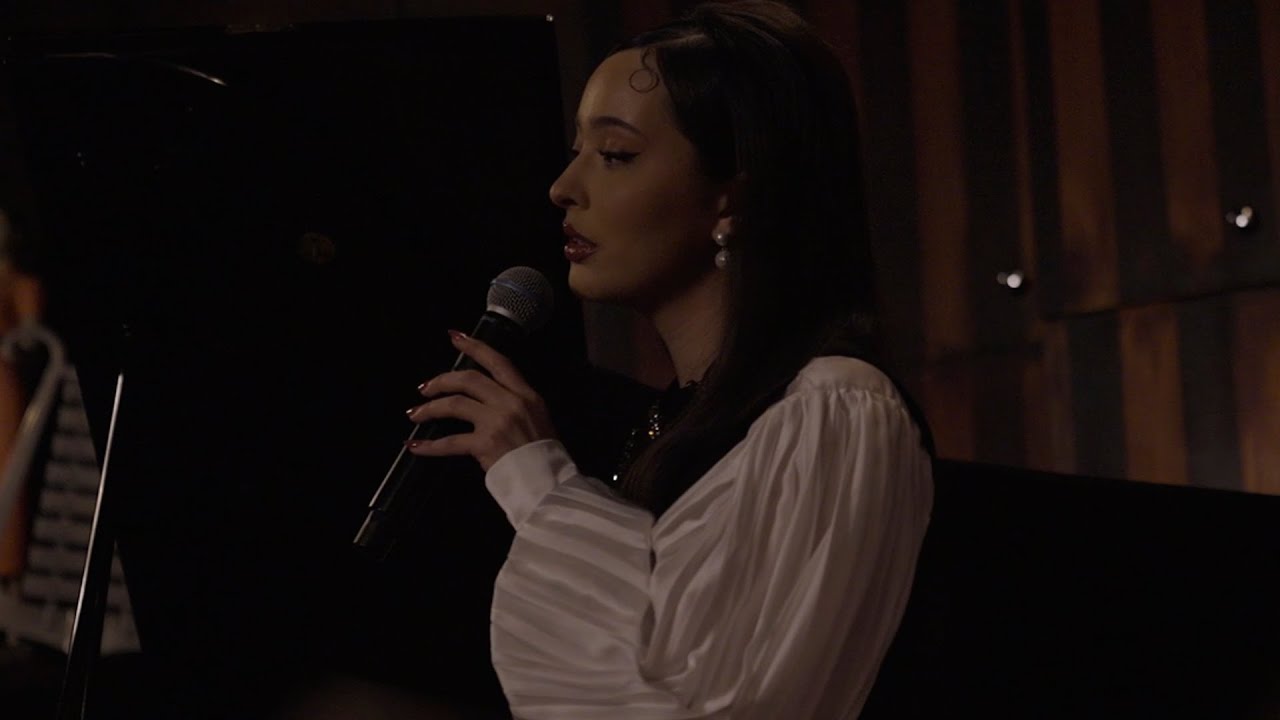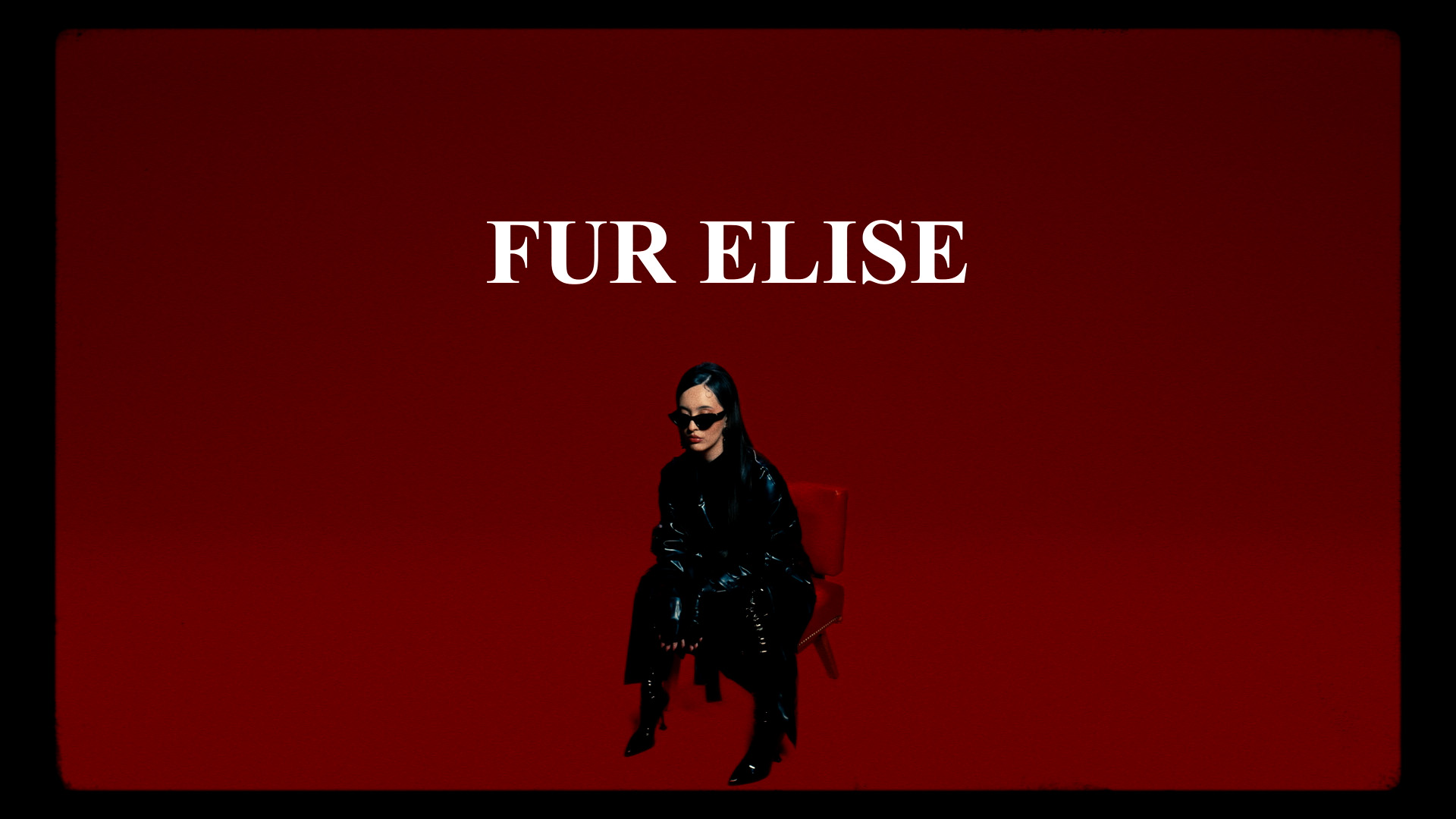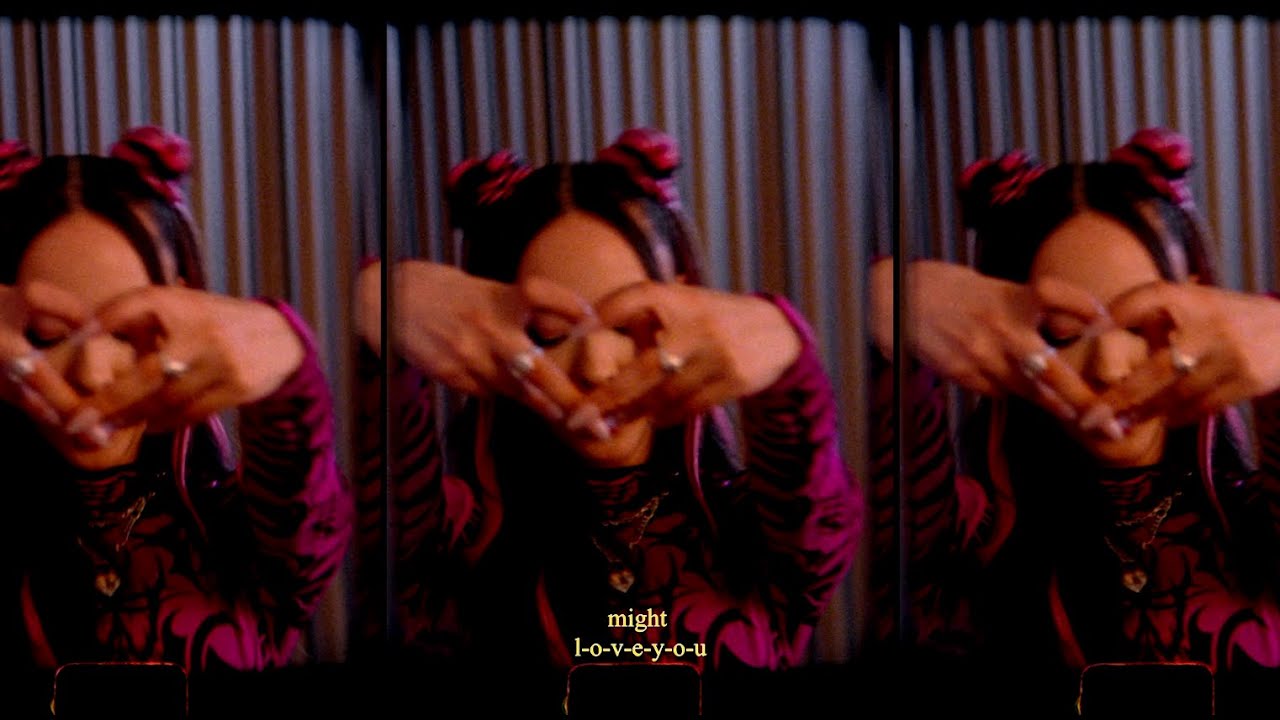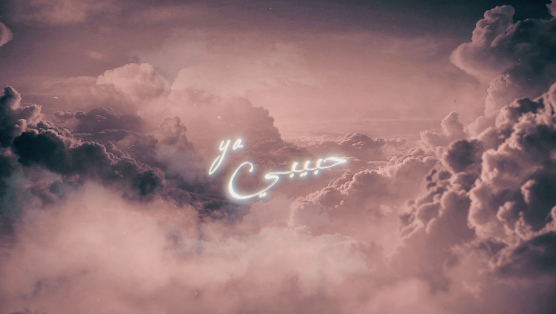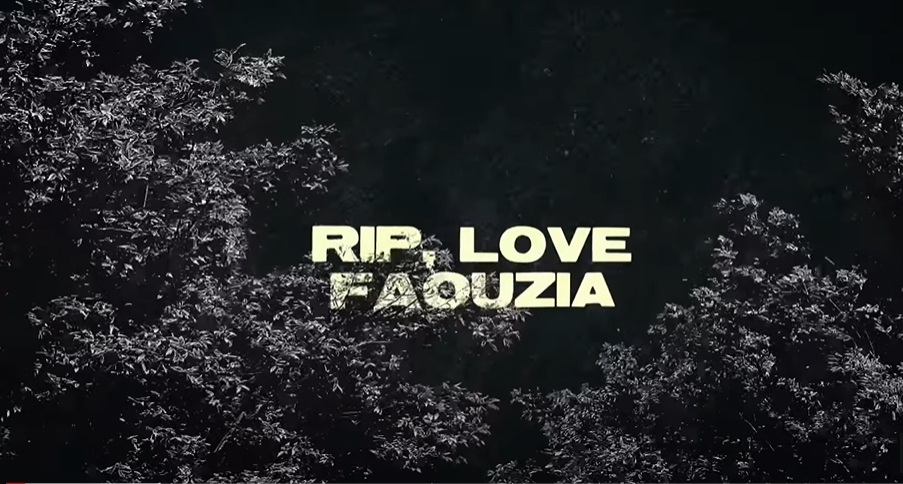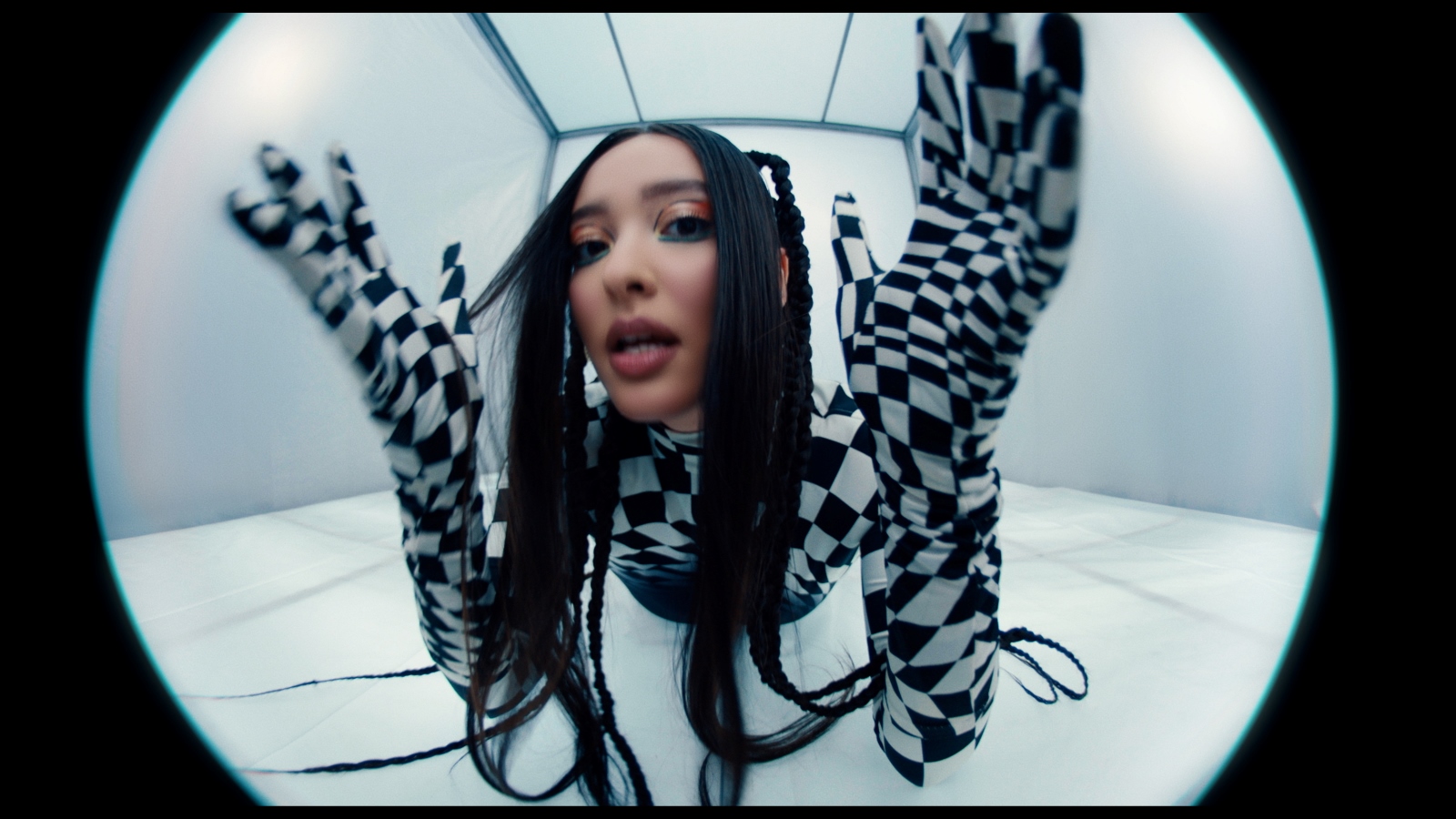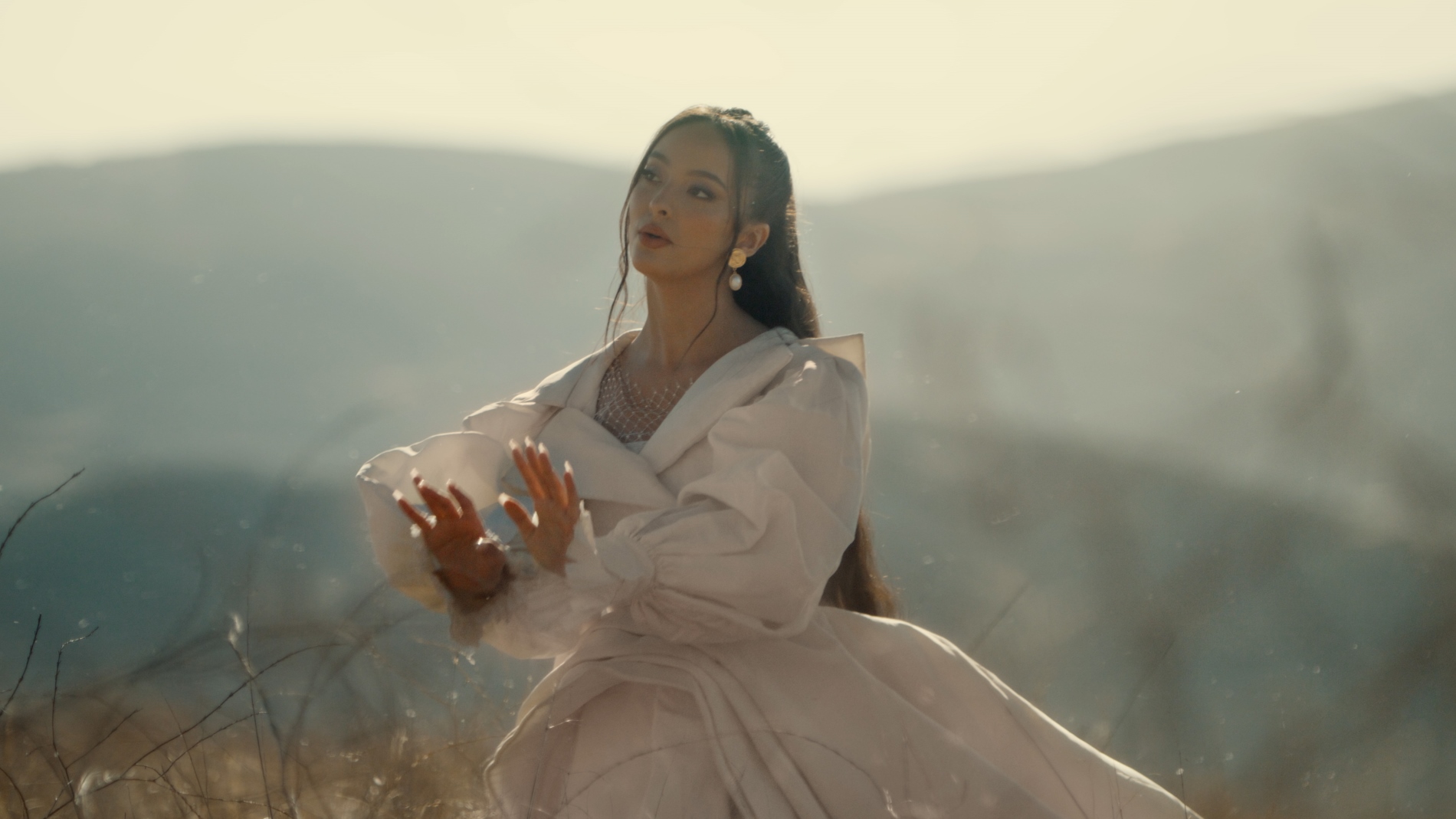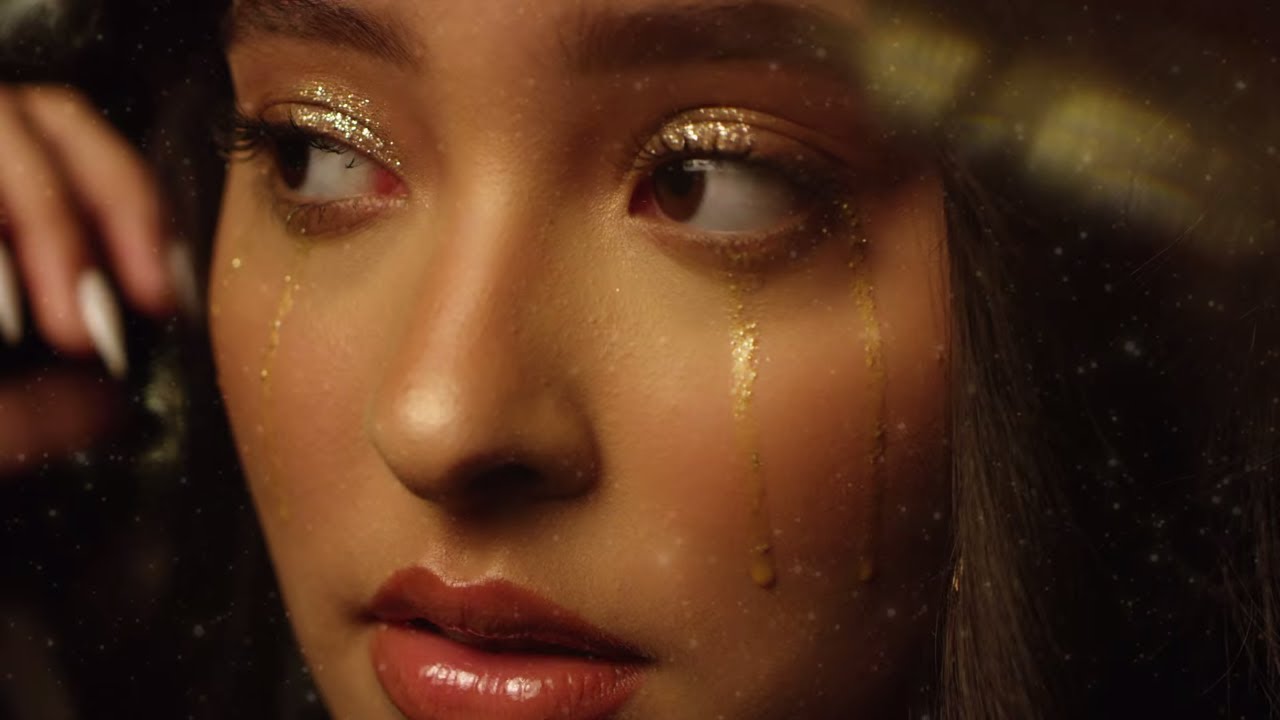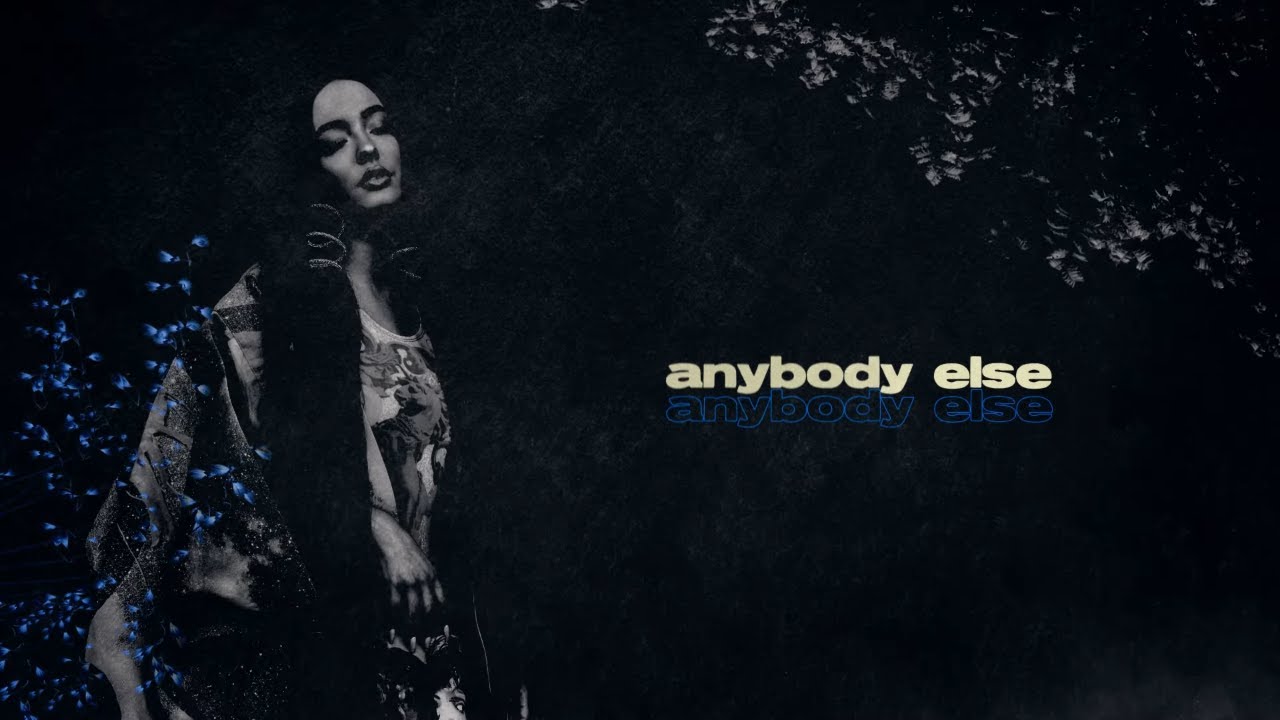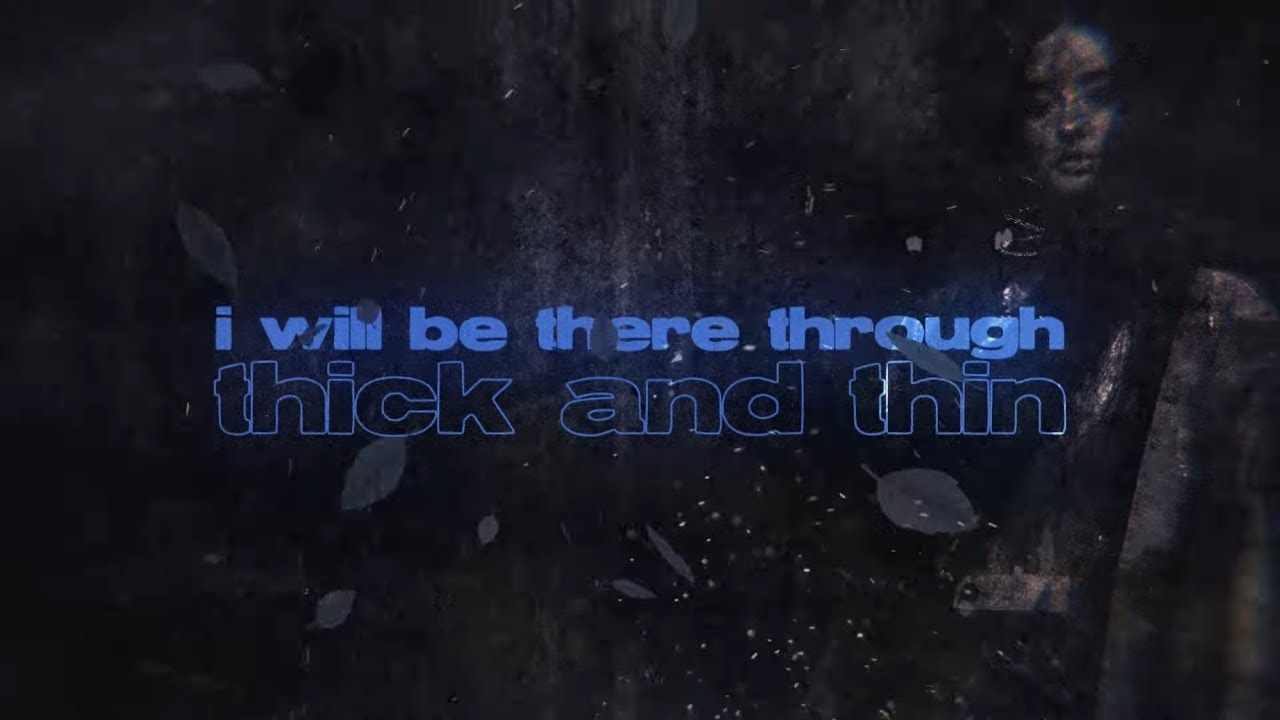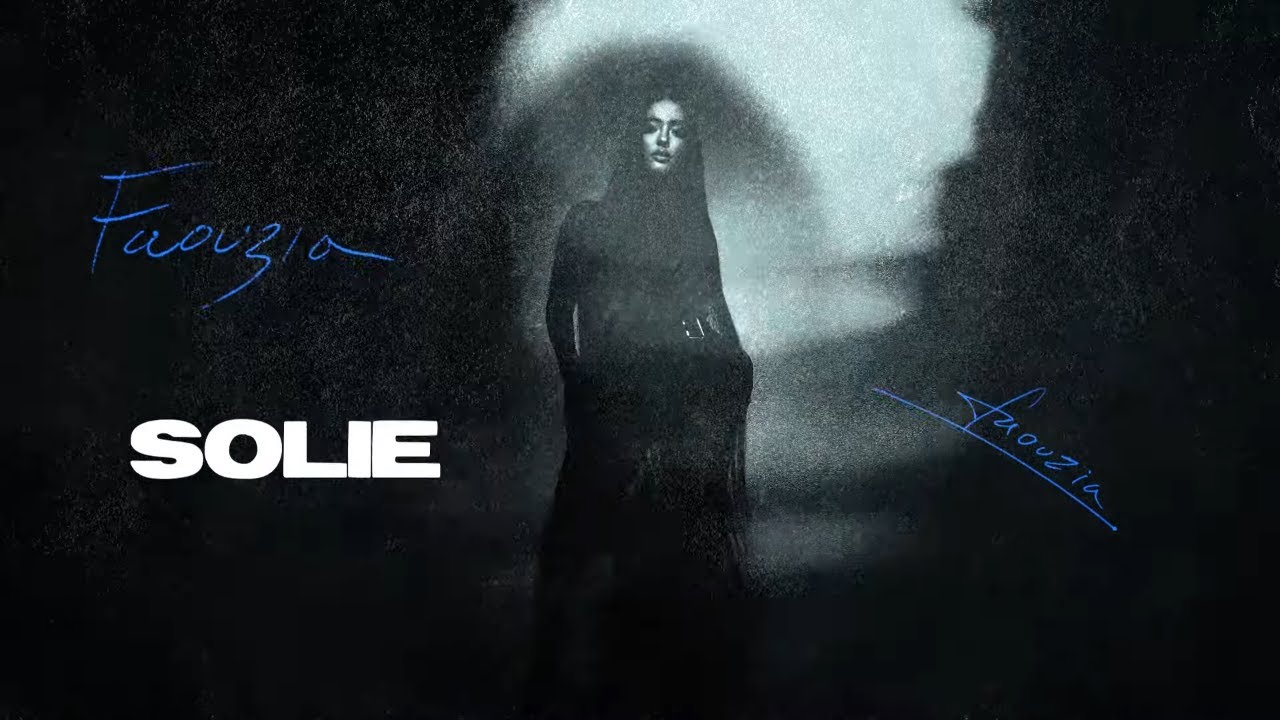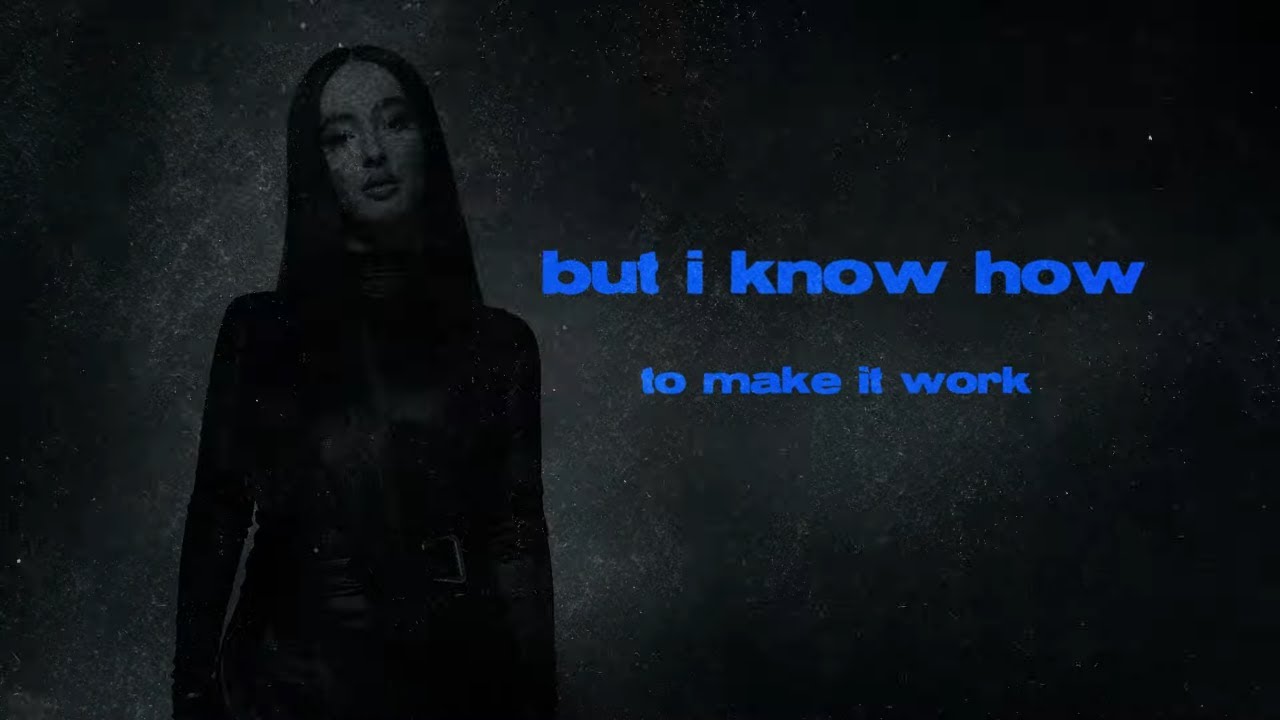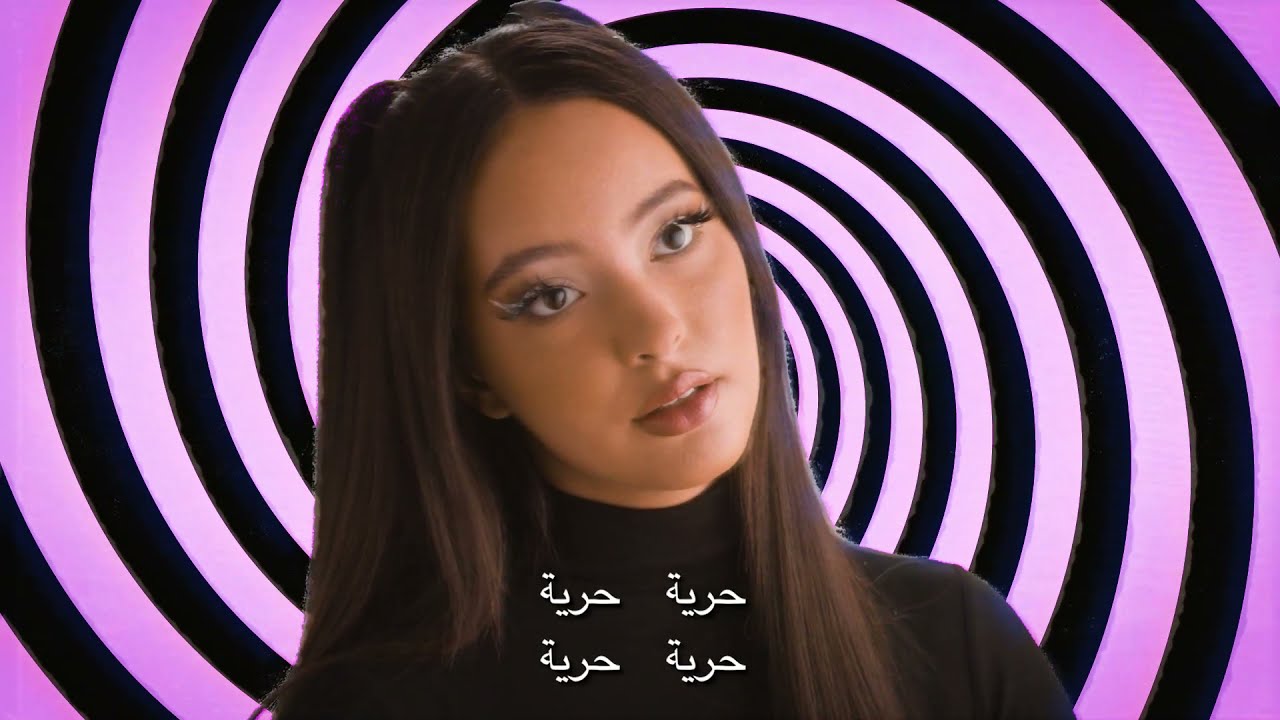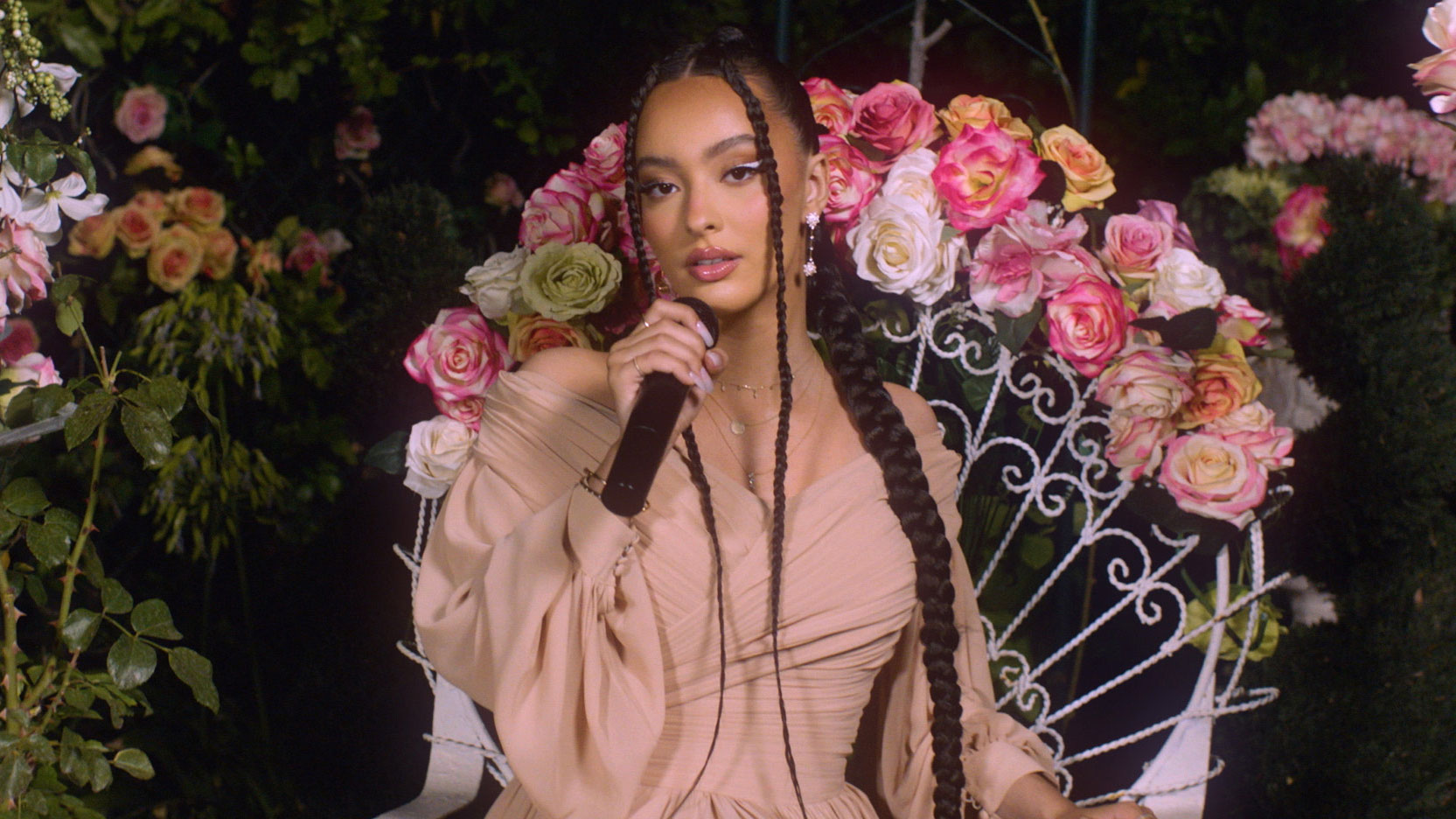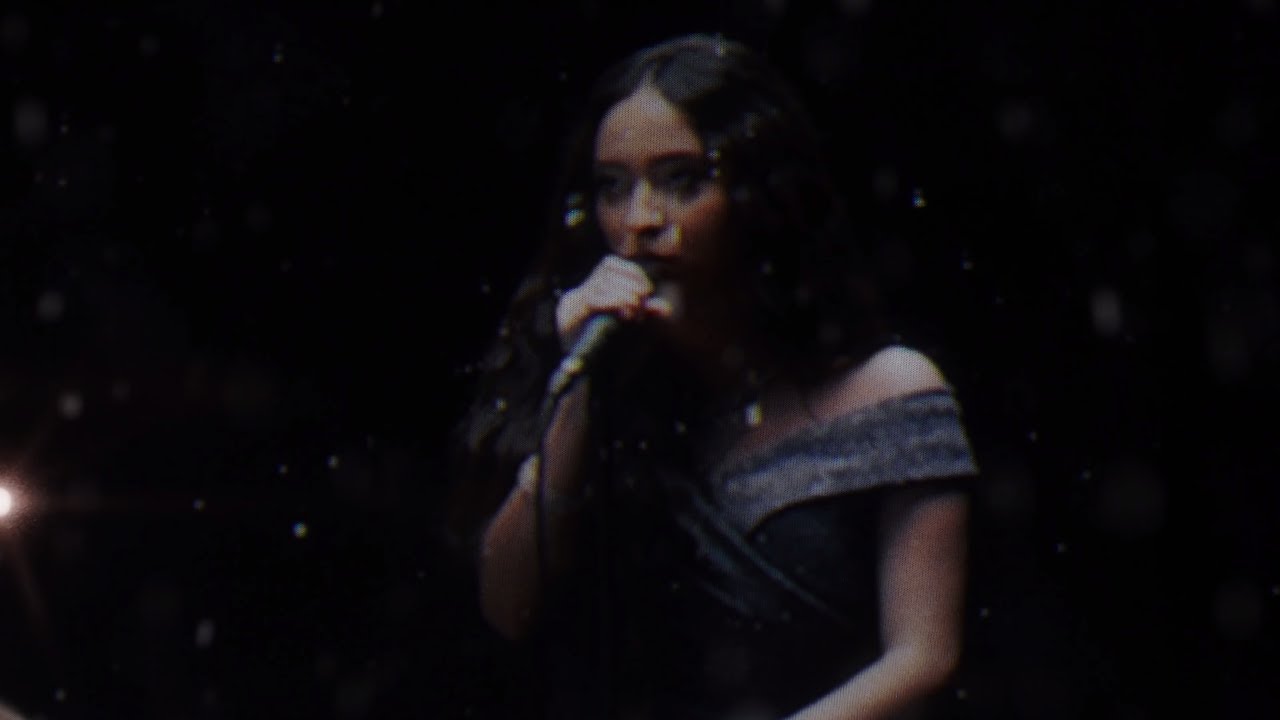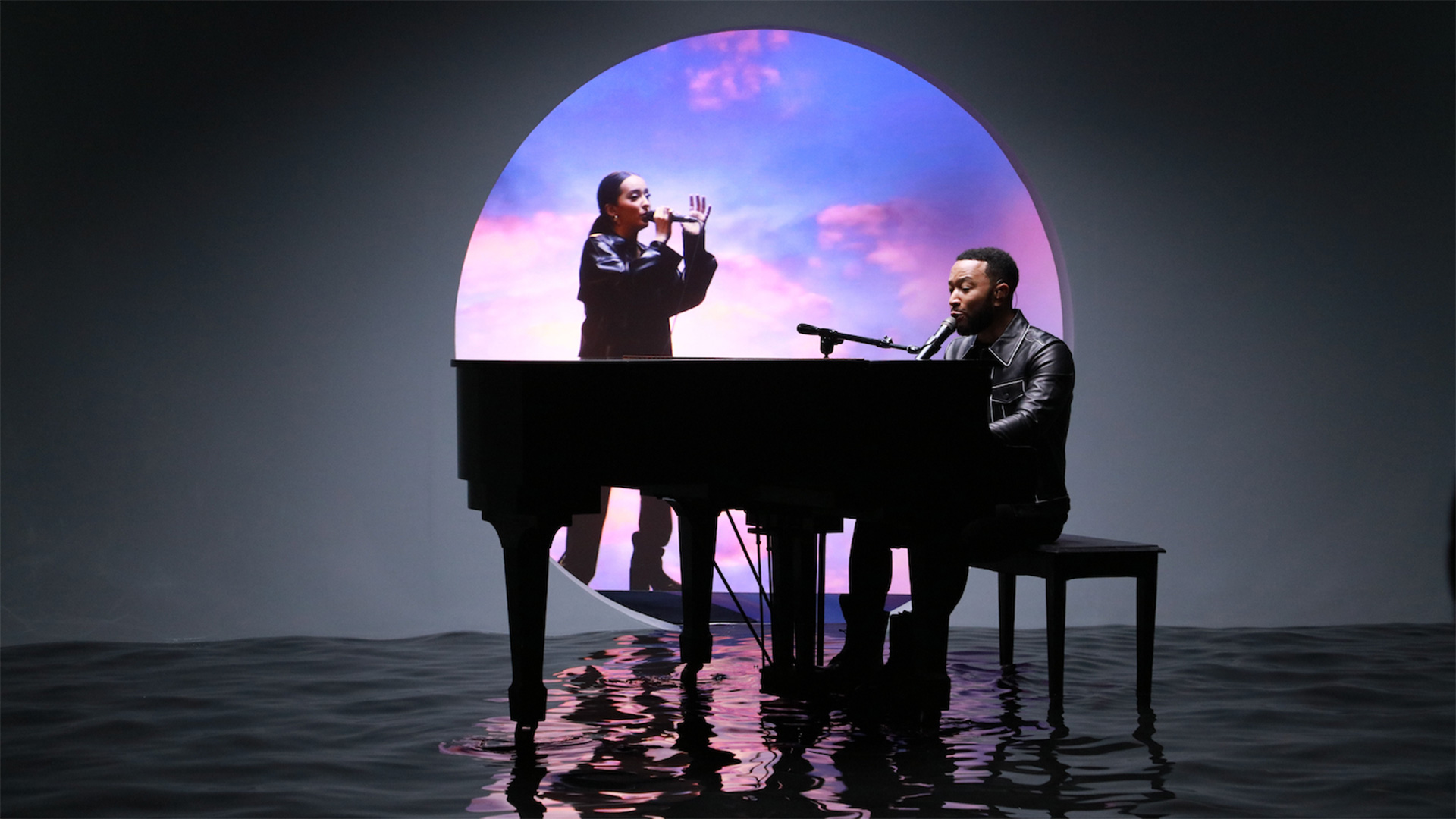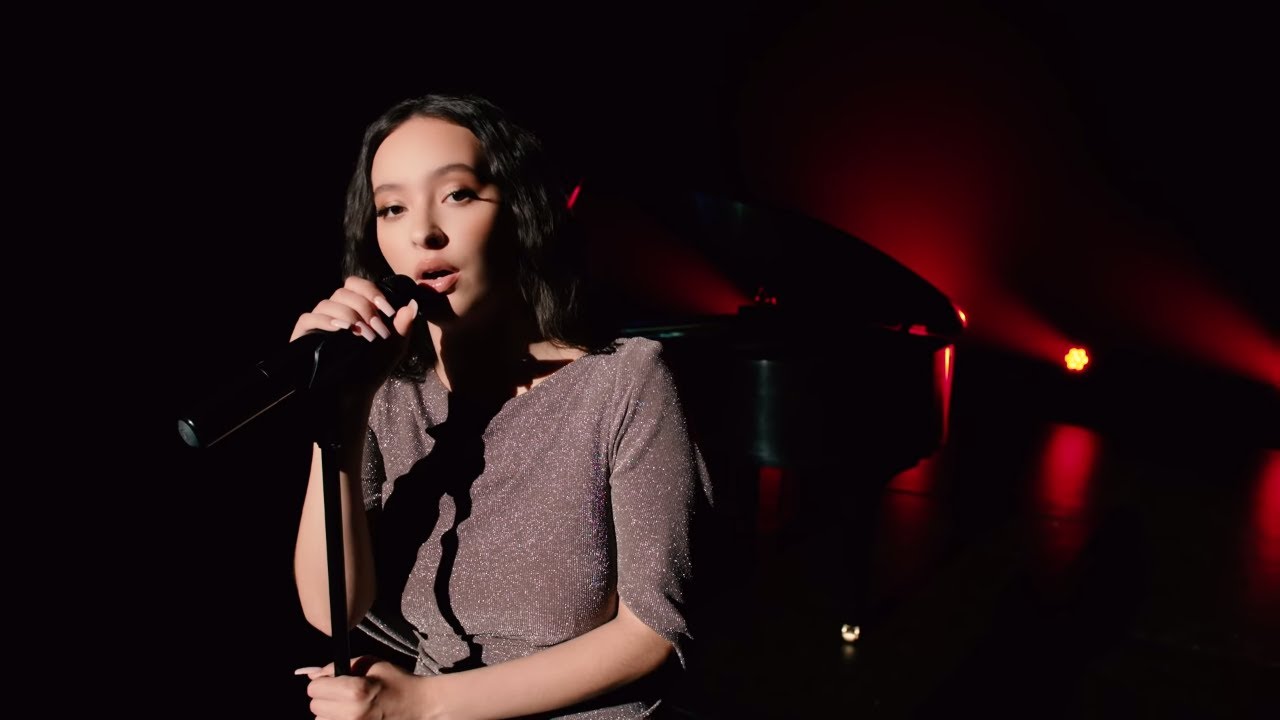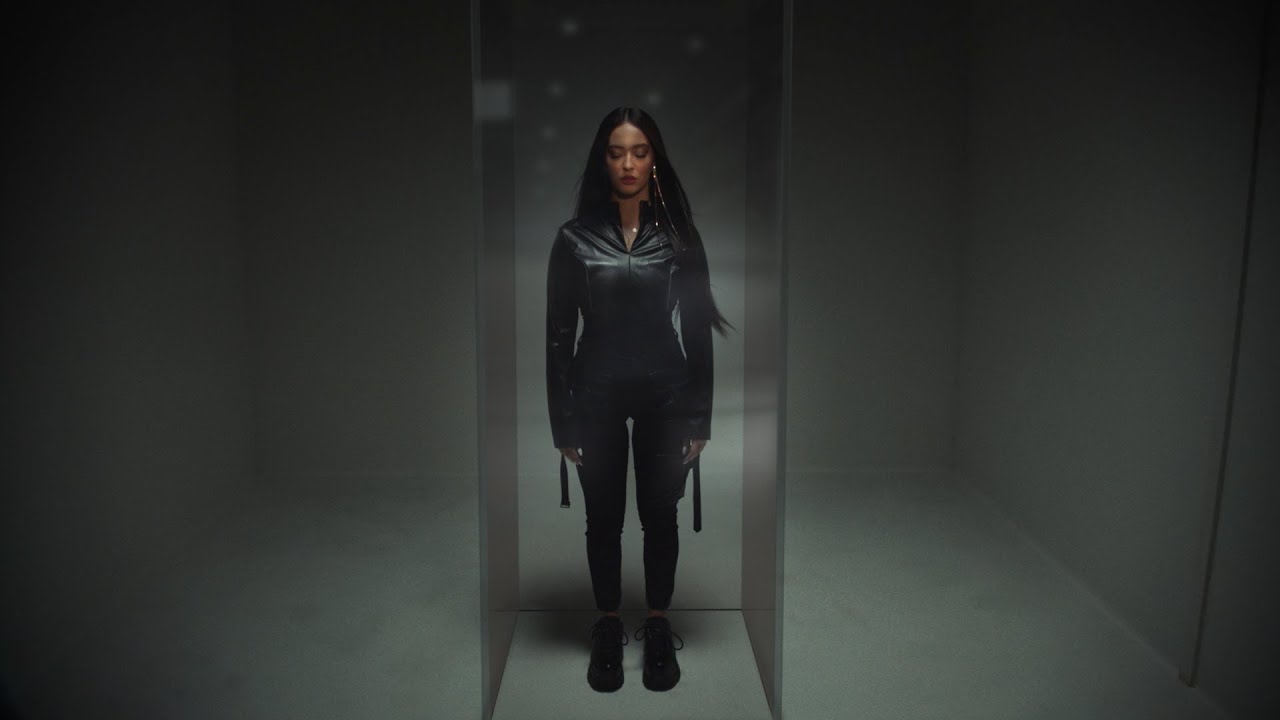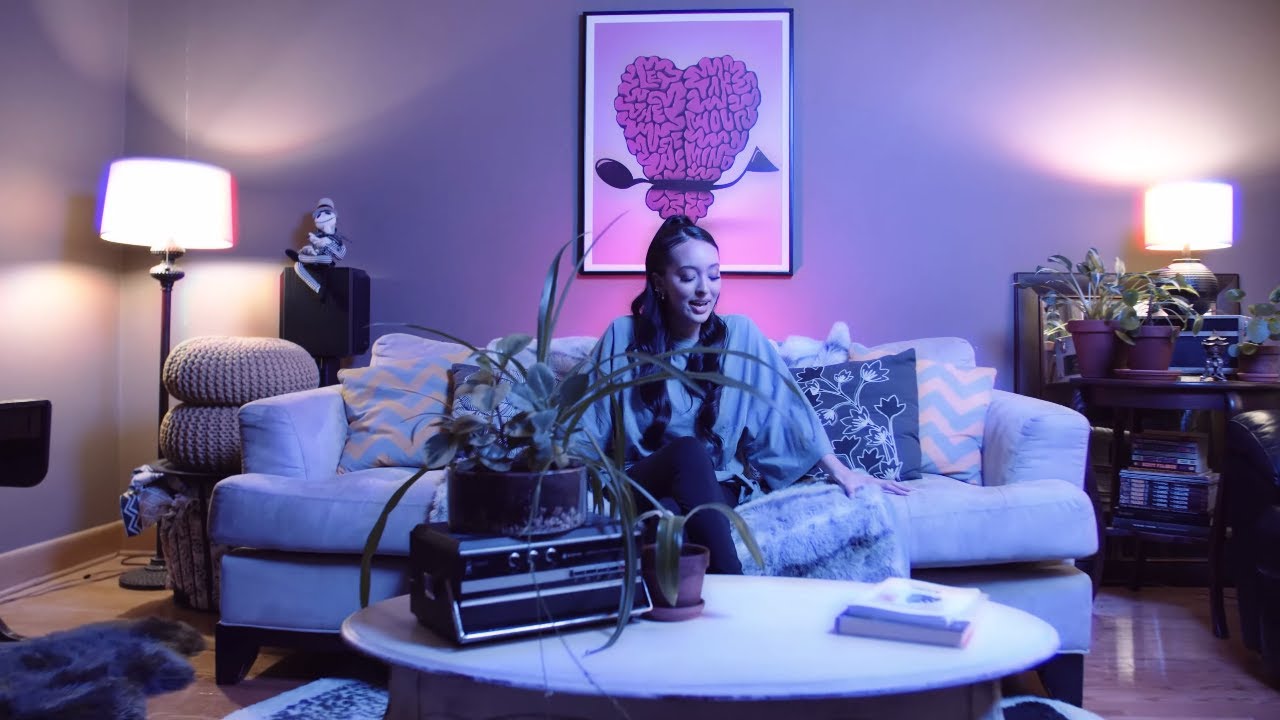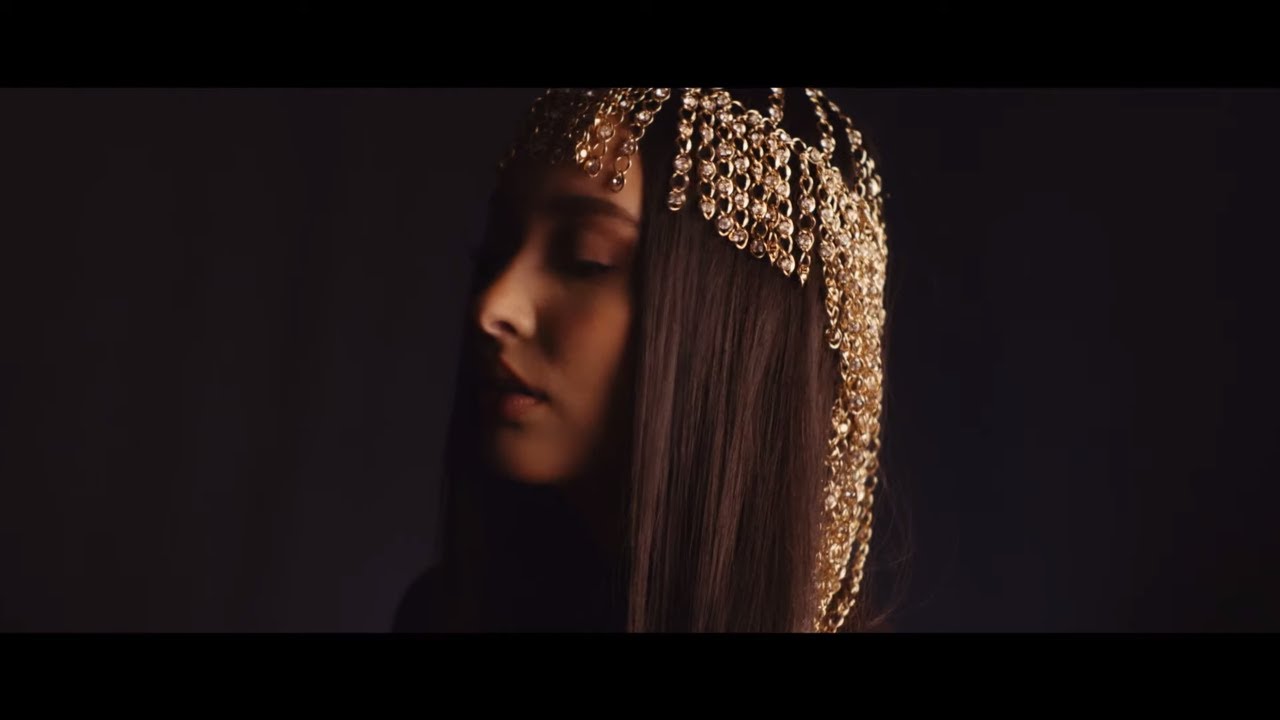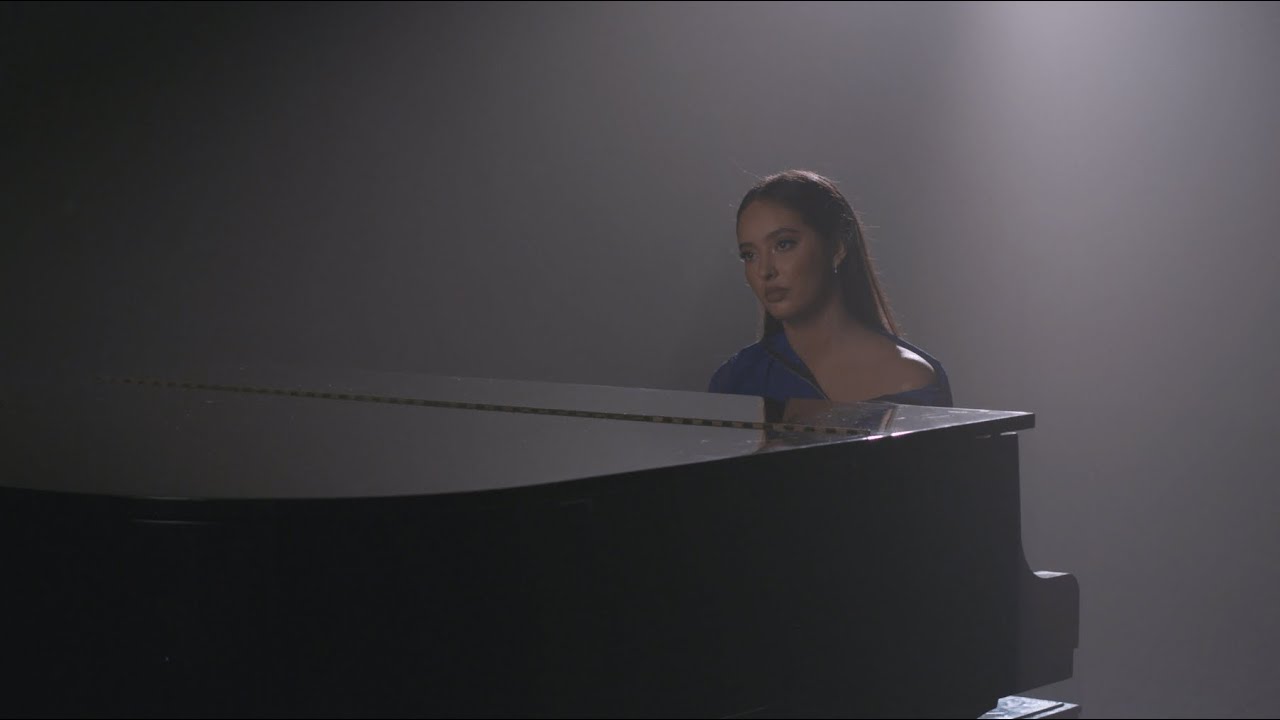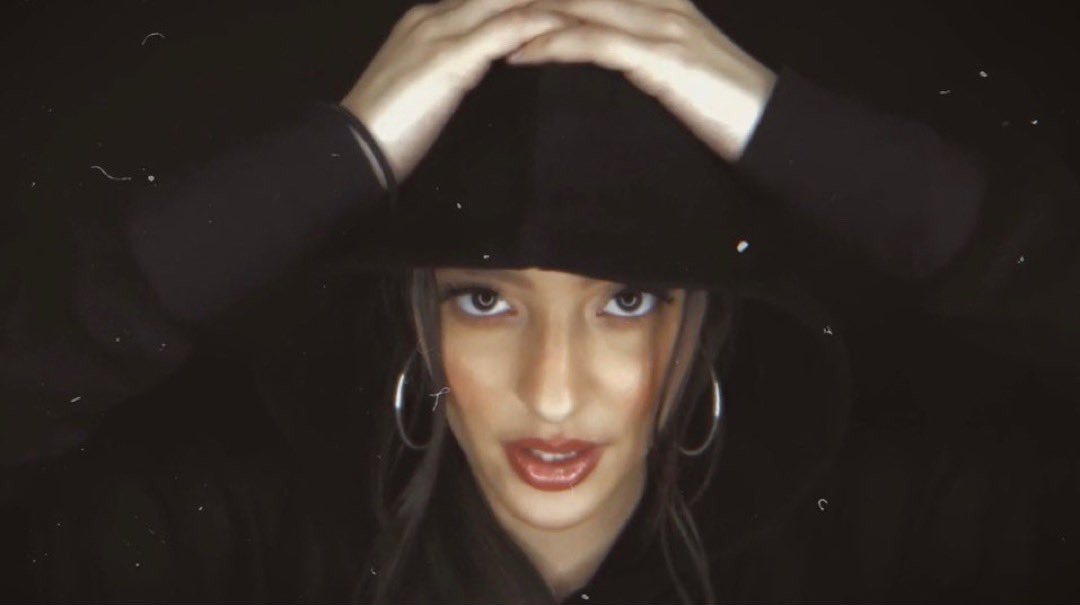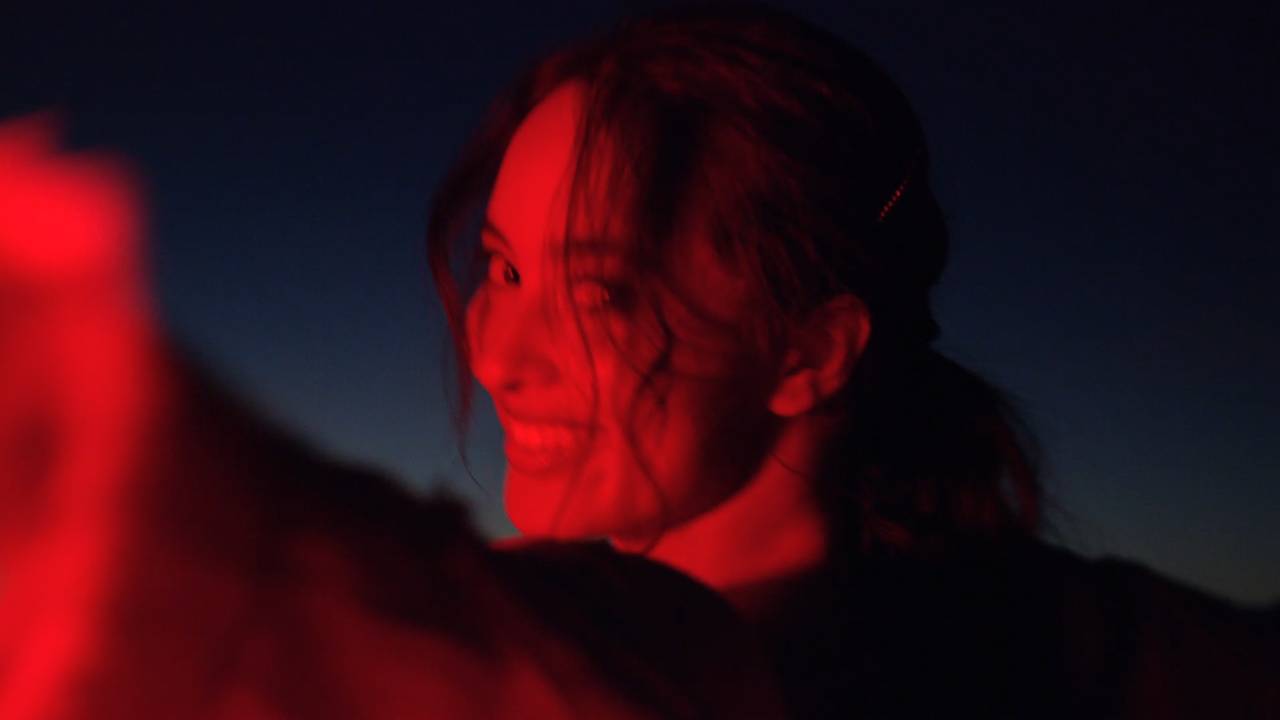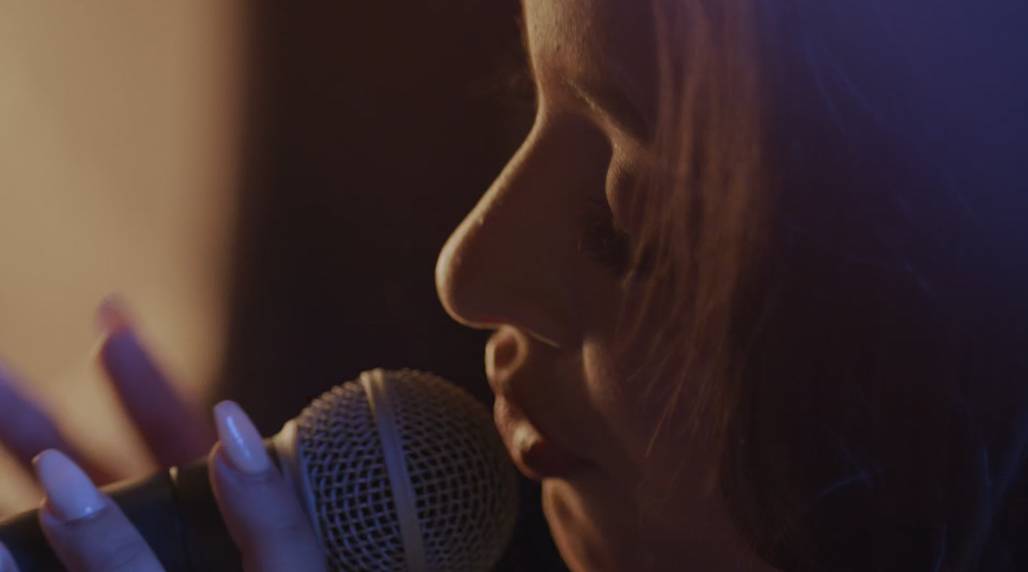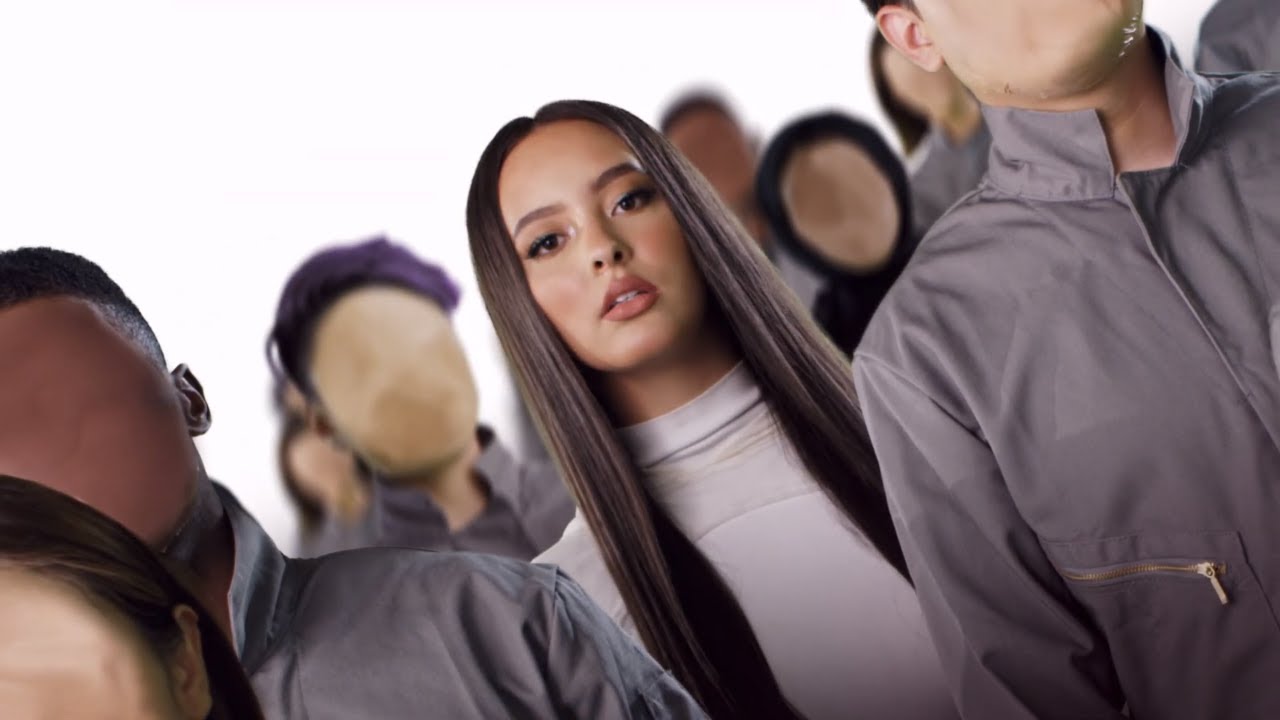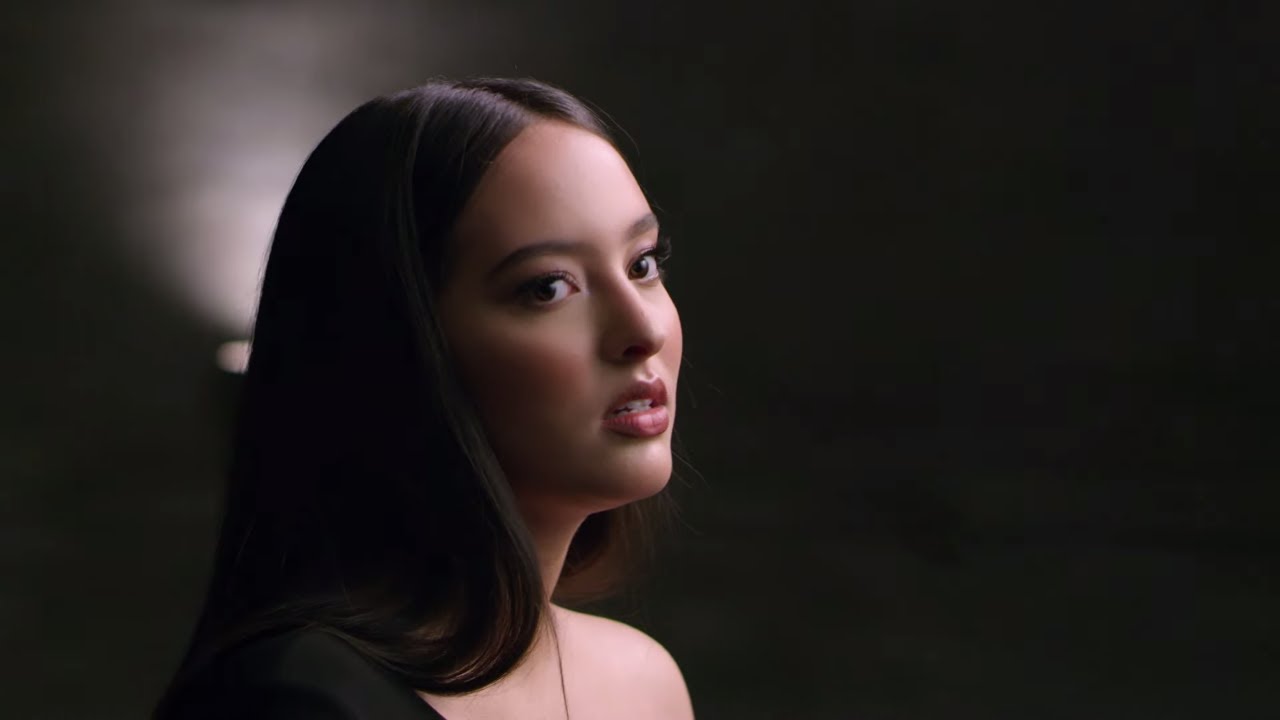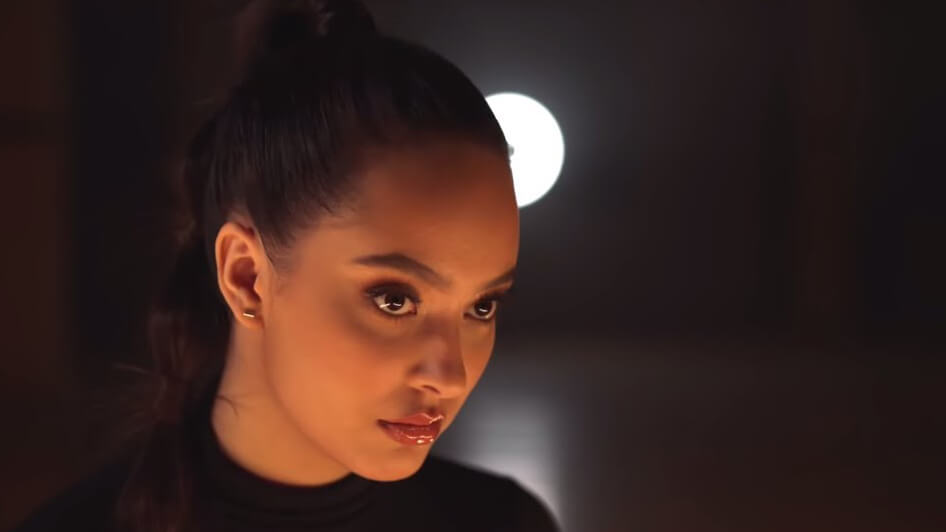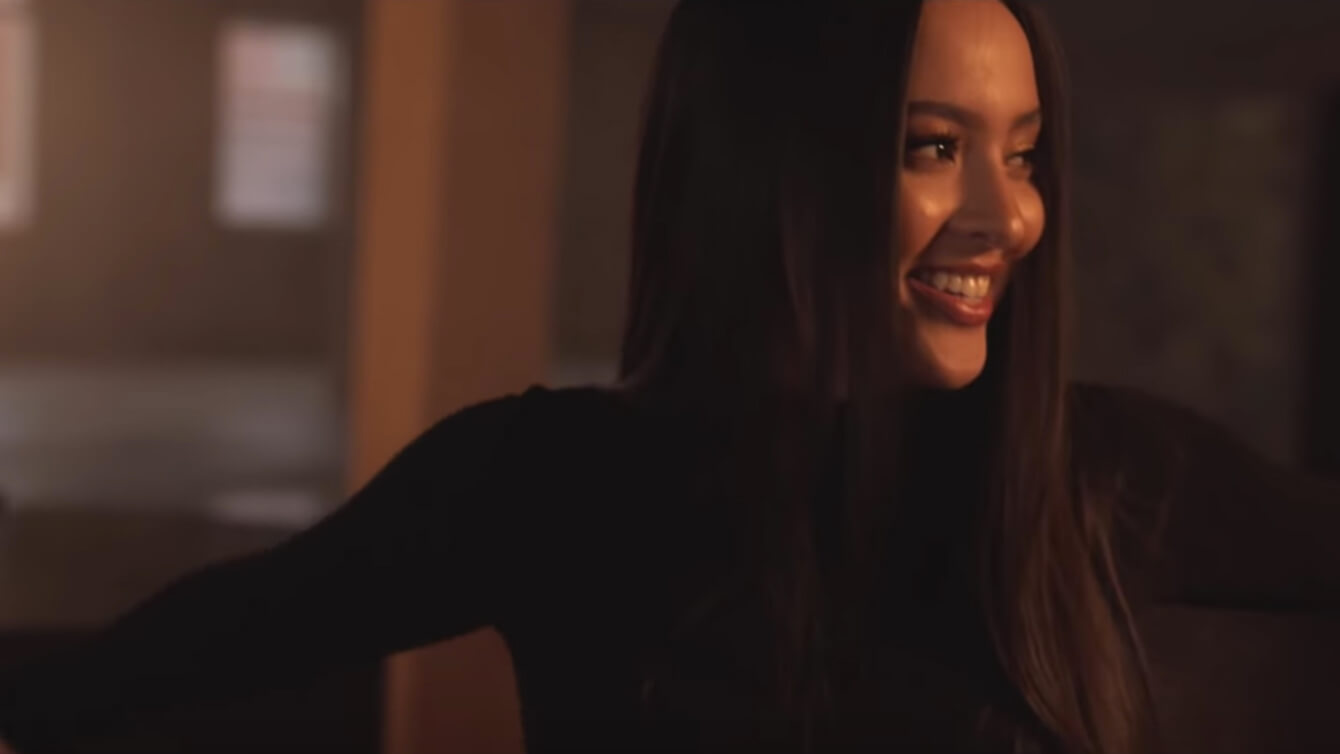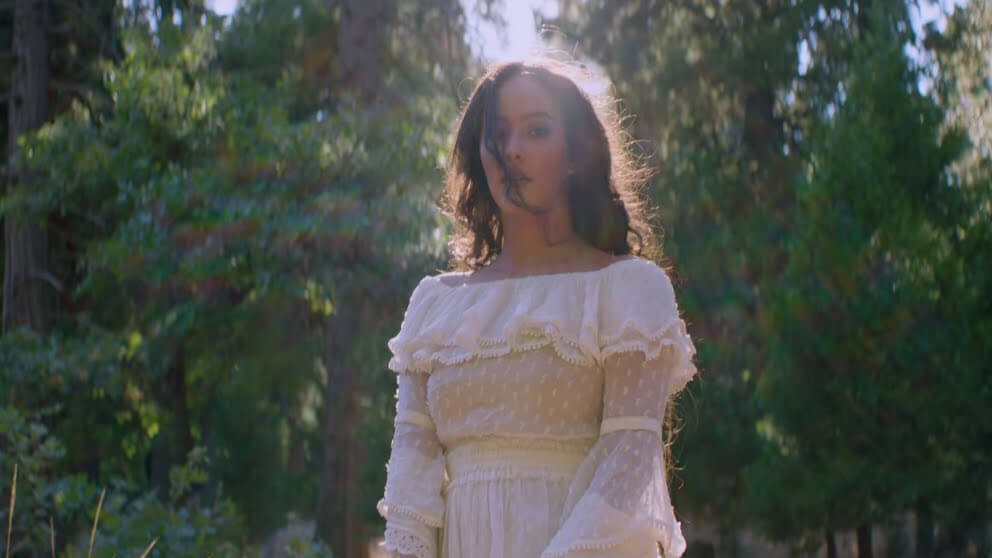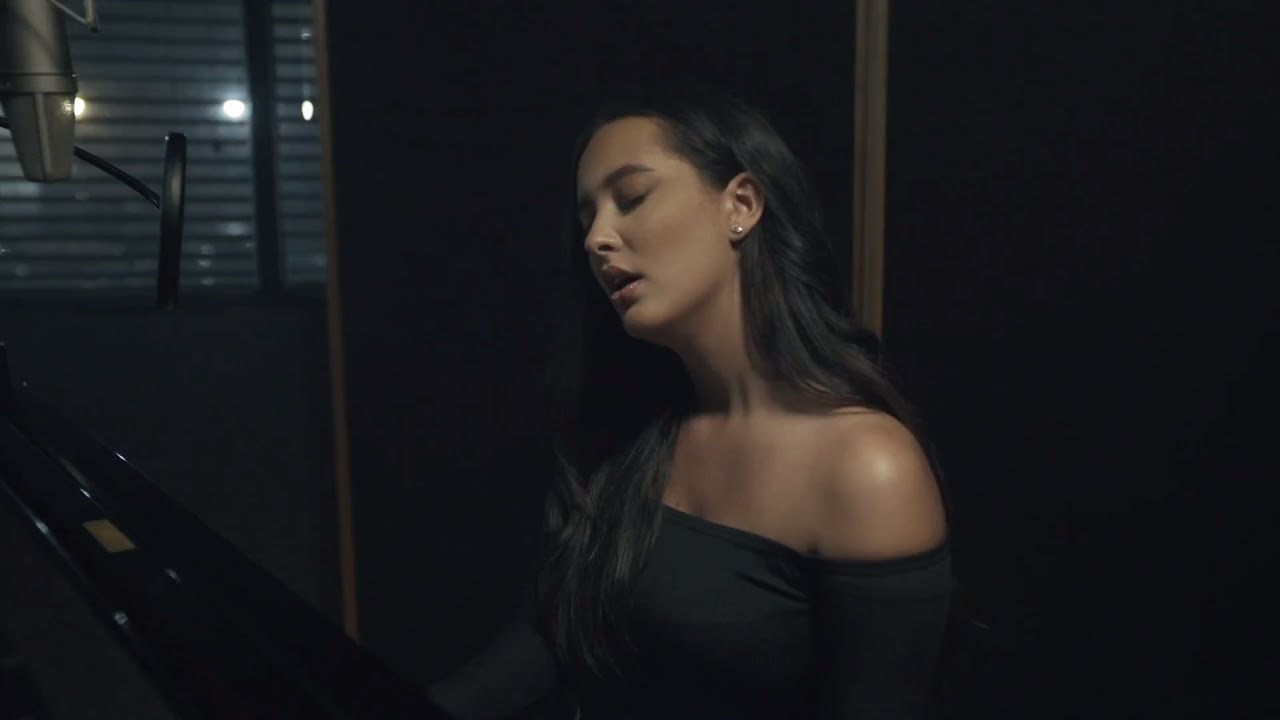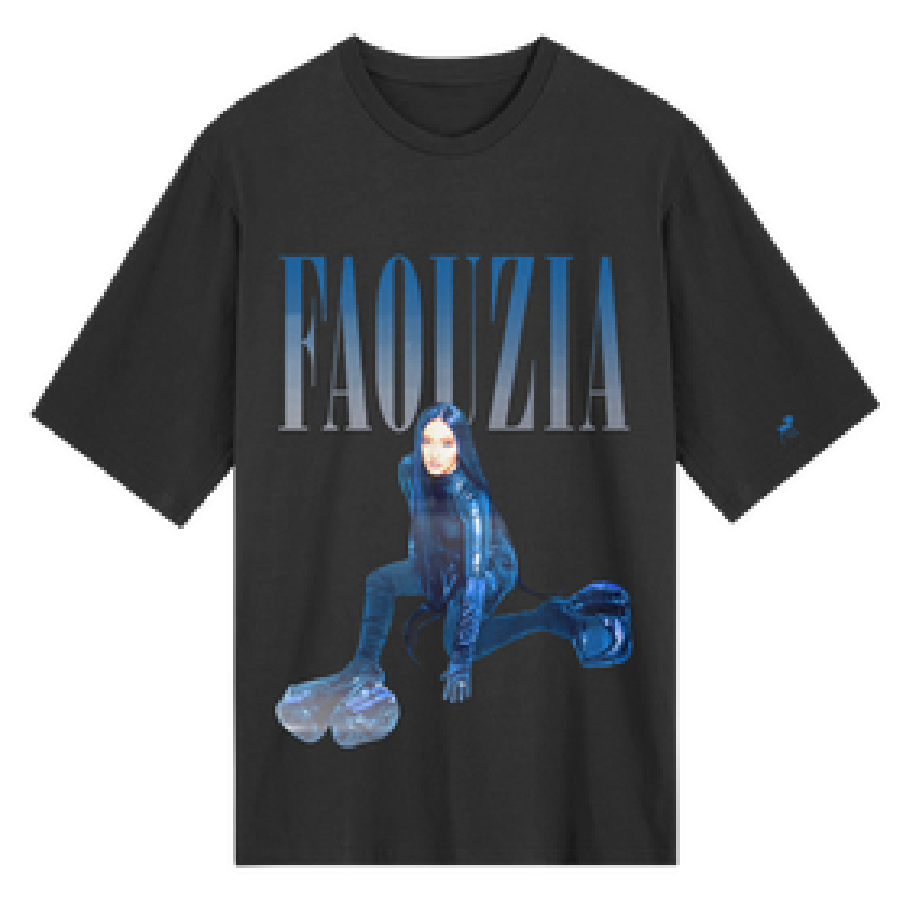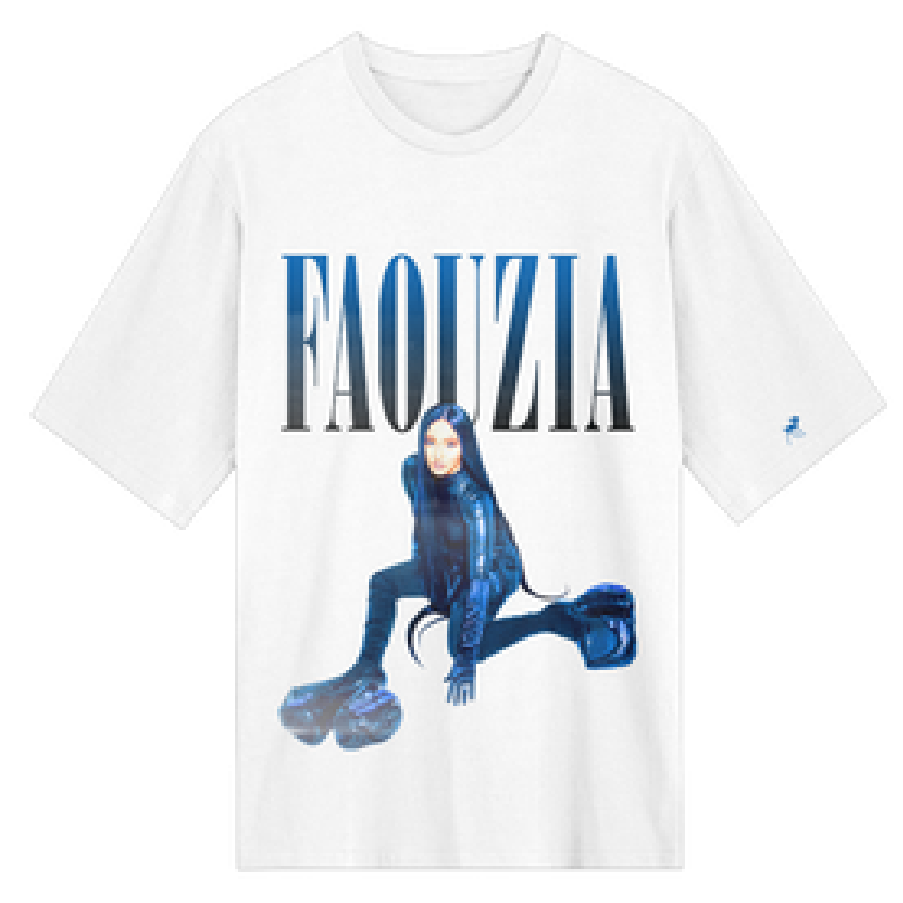Music + videos
Merch
TOUR
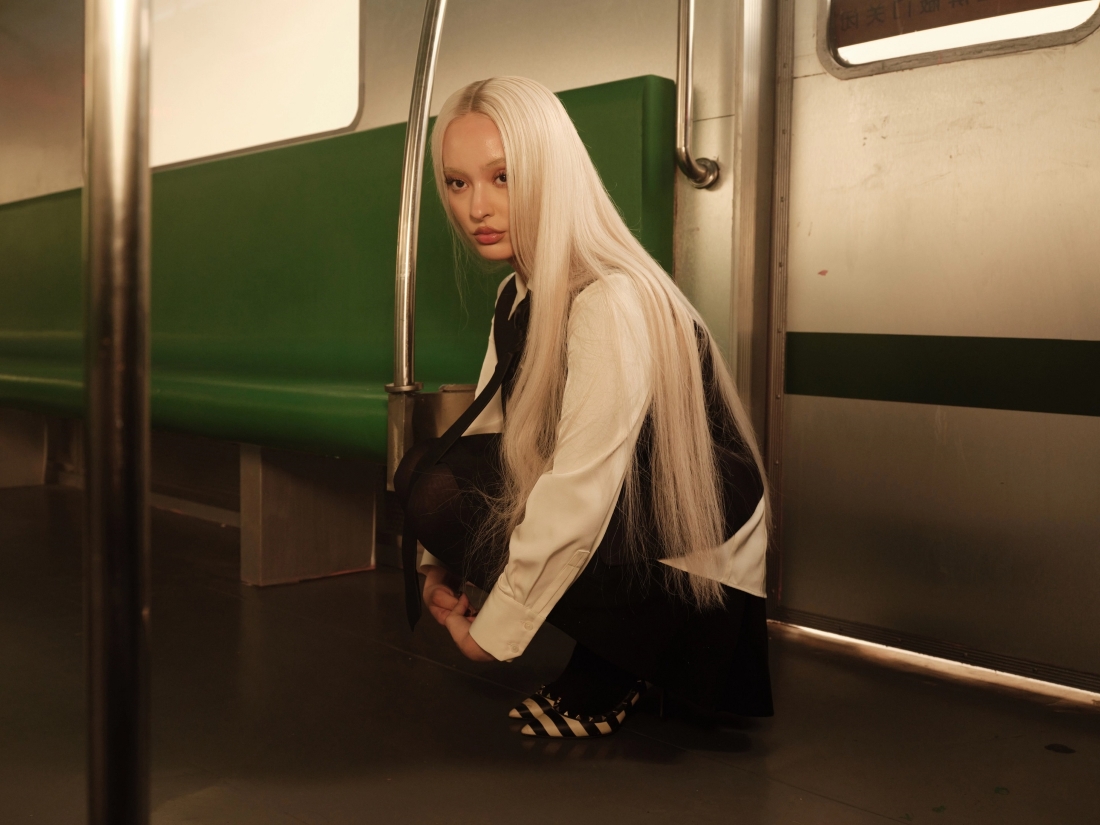
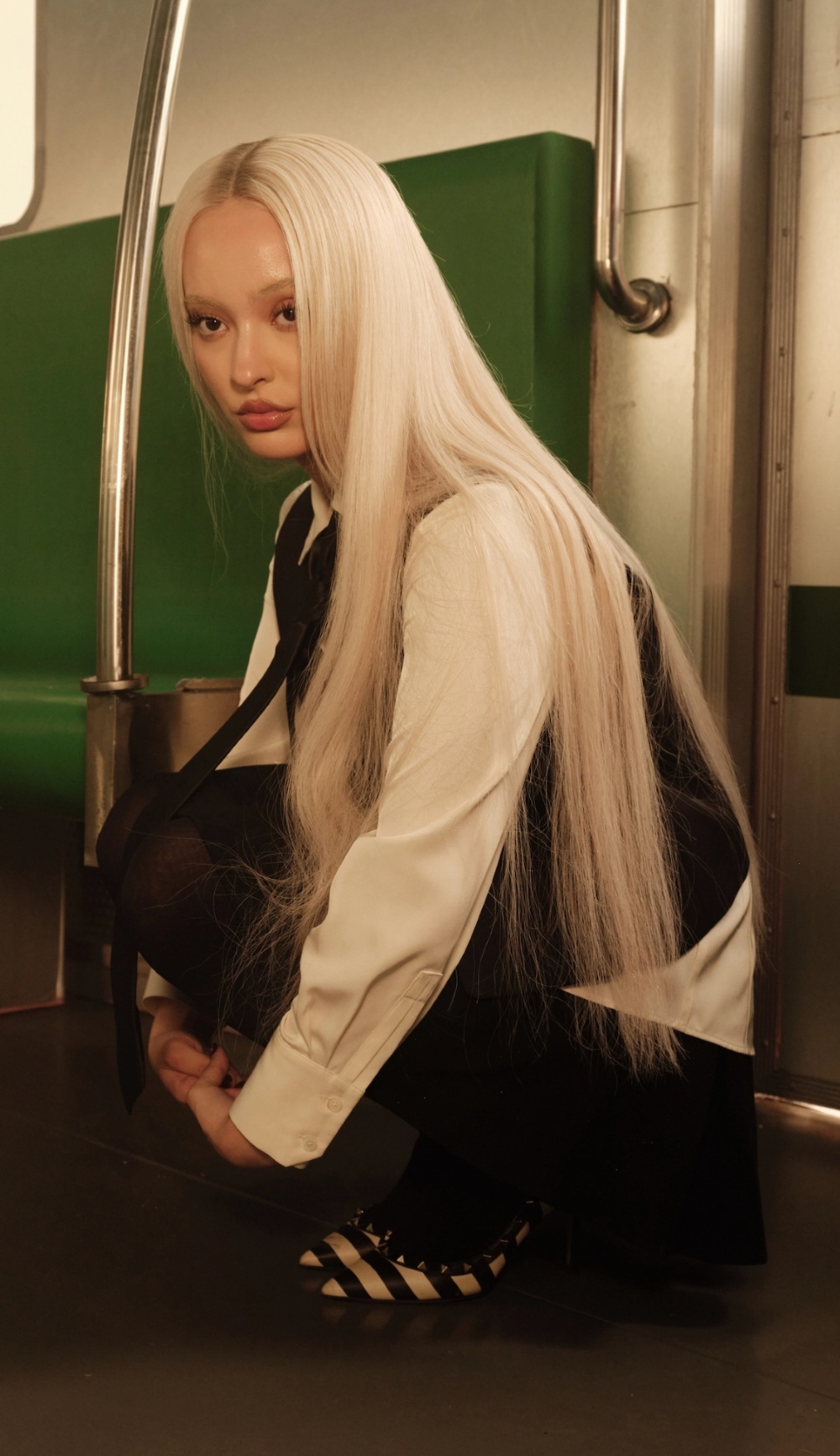
ABOUT FAOUZIA
With her spellbinding voice, fierce intelligence, and larger-than-life talent, 24-year-old singer/songwriter Faouzia has an extraordinary charisma that’s equally matched by her ingenuity. Born in Morocco but raised in Canada, the classically trained multi-instrumentalist started crafting her own songs at the age of six,
and soon dreamed up a hypnotic brand of pop informed by powerhouse divas like Beyoncé, Rihanna, and Lady Gaga along with the Middle Eastern chanteuses she listened to throughout her childhood. On the heels of her 2020 single “Minefields,” with global superstar John Legend, Faouzia is now set to deliver her most magnetic work to date,
realizing her vision with more boldness and self-assurance than ever before.
“Minefields” saw impressive success around the world, giving Faouzia her first Top 10 entry on the US iTunes charts as well as racking up over 100 million global streams, reaching #1 on the French pop charts, #2 on the all genre charts and #2 on the French airplay charts. A truly global artist, Faouzia was Canada’s first YouTube Artist on the Rise and has appeared in many global publications including VOGUE Arabia.
A brilliant introduction to her newly elevated sound, Faouzia’s high-energy single “Hero” brings bright textures and kinetic rhythms to an urgent message of self-reliance. “I wanted to write a song that’s almost the opposite of my song ‘Tears of Gold,’ which is about a one-sided love that leaves you feeling drained and empty,” she says, referring to her luminous 2019 anthem. “‘Hero’ is about refusing to accept that kind of love, in relationships or even in friendships, and wanting to build something that’s healthy and strong and beautiful.” In a testament to Faouzia’s tremendous creativity, “Hero” came to life late at night in the midst of studying for her final exams last December. “I took a break and came up with the first few lines, and pretty soon I had the hook,” says Faouzia, a computer-engineering major at the University of Manitoba. By the end of the night, she’d completed a rough version of “Hero” in her basement studio, and later worked with producer Alex Koste to shape the shimmering sonic atmosphere surrounding her fearlessly honest lyrics. The official “Hero” video, directed by Ariel Michelle, reveals Faouzia’s strong and independent nature. Battling adversity at every level, Faouzia proves she doesn’t need anyone to save her and that she will always come out on top.
On songs like “Hero,” Faouzia reveals the immense power of her musicality, maintaining exquisite control as her voice lifts and soars to glorious heights. Having moved from Morocco to Canada at one-year-old, she began studying music soon after her family settled in Manitoba, first taking up piano at age five and later learning to play violin and guitar. Not only a classically trained musician, Faouzia expressed her artistic side by writing short stories, making her own movies, and sketching fashion designs as a child—all while developing her emotionally charged approach to songwriting. “Even when I got busy with studying, at the end of the day I’d always sit down at the piano,” says Faouzia, who’s fluent in English, Arabic, and French. “For me, writing songs is a natural instinct.” Although she drew a great deal of inspiration from the pop world’s most iconic female artists, she also found herself indelibly influenced by the likes of Egyptian singer/songwriter Umm Kulthum and Lebanese vocalist Fairuz. “I’d always try to imitate the trills they did with their voices, and so that style of singing became ingrained in me from a very young age,” Faouzia points out.
Upon releasing her first song at age 15, Faouzia experienced immediate success as the track amassed over a million streams on Spotify. Within the next few years she’d appeared as a featured artist on “Battle”—a cut from David Guetta’s internationally chart-topping 2018 album 7—and begun balancing her burgeoning music career with her rigorous studies at college. Arriving in late 2019, the moody and cinematic “Tears of Gold” marked a major breakthrough for Faouzia, who describes the song as the most deeply personal track she’d written at that point. “The melodies and the way I sang them had a Middle Eastern twist that felt very true to me, and different from anything I’d done in the past,” she notes. “I felt like it was me in the form of a song, and the fact that it resonated with so many people made me feel so understood.” With its subtly surrealist lyrics, “Tears of Gold” also illuminates Faouzia’s vast and vibrant inner life with a breathtaking clarity. Naming classic fantasy films like Spirited Away among her favorite movies, she’s also a voracious reader who discovered her love of poetry as a young girl. “I remember going to the library with my friends and taking out these old, dusty poetry books and then spending hours reading them,” she recalls. “For a while I was writing my own poetry, but eventually I started turning the poems into songs.”
Not long after landing a deal with Atlantic Records, Faouzia released a string of impressive collaborations including “I Dare You” with global superstar Kelly Clarkson, “I Fly” with chart-topping DJ duo Galantis and “Money” alongside French rapper Ninho. Faouzia made her major-label debut with the 2020 EP Stripped, a six-track project comprised of beautifully stark renditions of “Tears of Gold” and singles like “Born Without a Heart.” Just a few months later, she returned with “Minefields,” a soulful and stunning ballad featuring Charlie Puth on piano. “John Legend’s name came up right away when we were brainstorming who might be the male vocalist on that song, but I figured he was way out of reach,” Faouzia says. “We sent the song over and a week later John sent it back with his vocals on it, and it sounded so amazing—like it was always meant to be that way.”
Now at work on her debut album, Faouzia remains focused on turning her unbridled self-expression into a powerful outlet for her audience. “My favorite thing is hearing that one of my songs helped someone feel motivated or empowered, or even helped them to have a good cry—which sometimes is all you need,” she says. “I really believe that immersing yourself in music can help you through the tough times in life, and I always hope that my songs can do that for everyone.”
“Minefields” saw impressive success around the world, giving Faouzia her first Top 10 entry on the US iTunes charts as well as racking up over 100 million global streams, reaching #1 on the French pop charts, #2 on the all genre charts and #2 on the French airplay charts. A truly global artist, Faouzia was Canada’s first YouTube Artist on the Rise and has appeared in many global publications including VOGUE Arabia.
A brilliant introduction to her newly elevated sound, Faouzia’s high-energy single “Hero” brings bright textures and kinetic rhythms to an urgent message of self-reliance. “I wanted to write a song that’s almost the opposite of my song ‘Tears of Gold,’ which is about a one-sided love that leaves you feeling drained and empty,” she says, referring to her luminous 2019 anthem. “‘Hero’ is about refusing to accept that kind of love, in relationships or even in friendships, and wanting to build something that’s healthy and strong and beautiful.” In a testament to Faouzia’s tremendous creativity, “Hero” came to life late at night in the midst of studying for her final exams last December. “I took a break and came up with the first few lines, and pretty soon I had the hook,” says Faouzia, a computer-engineering major at the University of Manitoba. By the end of the night, she’d completed a rough version of “Hero” in her basement studio, and later worked with producer Alex Koste to shape the shimmering sonic atmosphere surrounding her fearlessly honest lyrics. The official “Hero” video, directed by Ariel Michelle, reveals Faouzia’s strong and independent nature. Battling adversity at every level, Faouzia proves she doesn’t need anyone to save her and that she will always come out on top.
On songs like “Hero,” Faouzia reveals the immense power of her musicality, maintaining exquisite control as her voice lifts and soars to glorious heights. Having moved from Morocco to Canada at one-year-old, she began studying music soon after her family settled in Manitoba, first taking up piano at age five and later learning to play violin and guitar. Not only a classically trained musician, Faouzia expressed her artistic side by writing short stories, making her own movies, and sketching fashion designs as a child—all while developing her emotionally charged approach to songwriting. “Even when I got busy with studying, at the end of the day I’d always sit down at the piano,” says Faouzia, who’s fluent in English, Arabic, and French. “For me, writing songs is a natural instinct.” Although she drew a great deal of inspiration from the pop world’s most iconic female artists, she also found herself indelibly influenced by the likes of Egyptian singer/songwriter Umm Kulthum and Lebanese vocalist Fairuz. “I’d always try to imitate the trills they did with their voices, and so that style of singing became ingrained in me from a very young age,” Faouzia points out.
Upon releasing her first song at age 15, Faouzia experienced immediate success as the track amassed over a million streams on Spotify. Within the next few years she’d appeared as a featured artist on “Battle”—a cut from David Guetta’s internationally chart-topping 2018 album 7—and begun balancing her burgeoning music career with her rigorous studies at college. Arriving in late 2019, the moody and cinematic “Tears of Gold” marked a major breakthrough for Faouzia, who describes the song as the most deeply personal track she’d written at that point. “The melodies and the way I sang them had a Middle Eastern twist that felt very true to me, and different from anything I’d done in the past,” she notes. “I felt like it was me in the form of a song, and the fact that it resonated with so many people made me feel so understood.” With its subtly surrealist lyrics, “Tears of Gold” also illuminates Faouzia’s vast and vibrant inner life with a breathtaking clarity. Naming classic fantasy films like Spirited Away among her favorite movies, she’s also a voracious reader who discovered her love of poetry as a young girl. “I remember going to the library with my friends and taking out these old, dusty poetry books and then spending hours reading them,” she recalls. “For a while I was writing my own poetry, but eventually I started turning the poems into songs.”
Not long after landing a deal with Atlantic Records, Faouzia released a string of impressive collaborations including “I Dare You” with global superstar Kelly Clarkson, “I Fly” with chart-topping DJ duo Galantis and “Money” alongside French rapper Ninho. Faouzia made her major-label debut with the 2020 EP Stripped, a six-track project comprised of beautifully stark renditions of “Tears of Gold” and singles like “Born Without a Heart.” Just a few months later, she returned with “Minefields,” a soulful and stunning ballad featuring Charlie Puth on piano. “John Legend’s name came up right away when we were brainstorming who might be the male vocalist on that song, but I figured he was way out of reach,” Faouzia says. “We sent the song over and a week later John sent it back with his vocals on it, and it sounded so amazing—like it was always meant to be that way.”
Now at work on her debut album, Faouzia remains focused on turning her unbridled self-expression into a powerful outlet for her audience. “My favorite thing is hearing that one of my songs helped someone feel motivated or empowered, or even helped them to have a good cry—which sometimes is all you need,” she says. “I really believe that immersing yourself in music can help you through the tough times in life, and I always hope that my songs can do that for everyone.”
